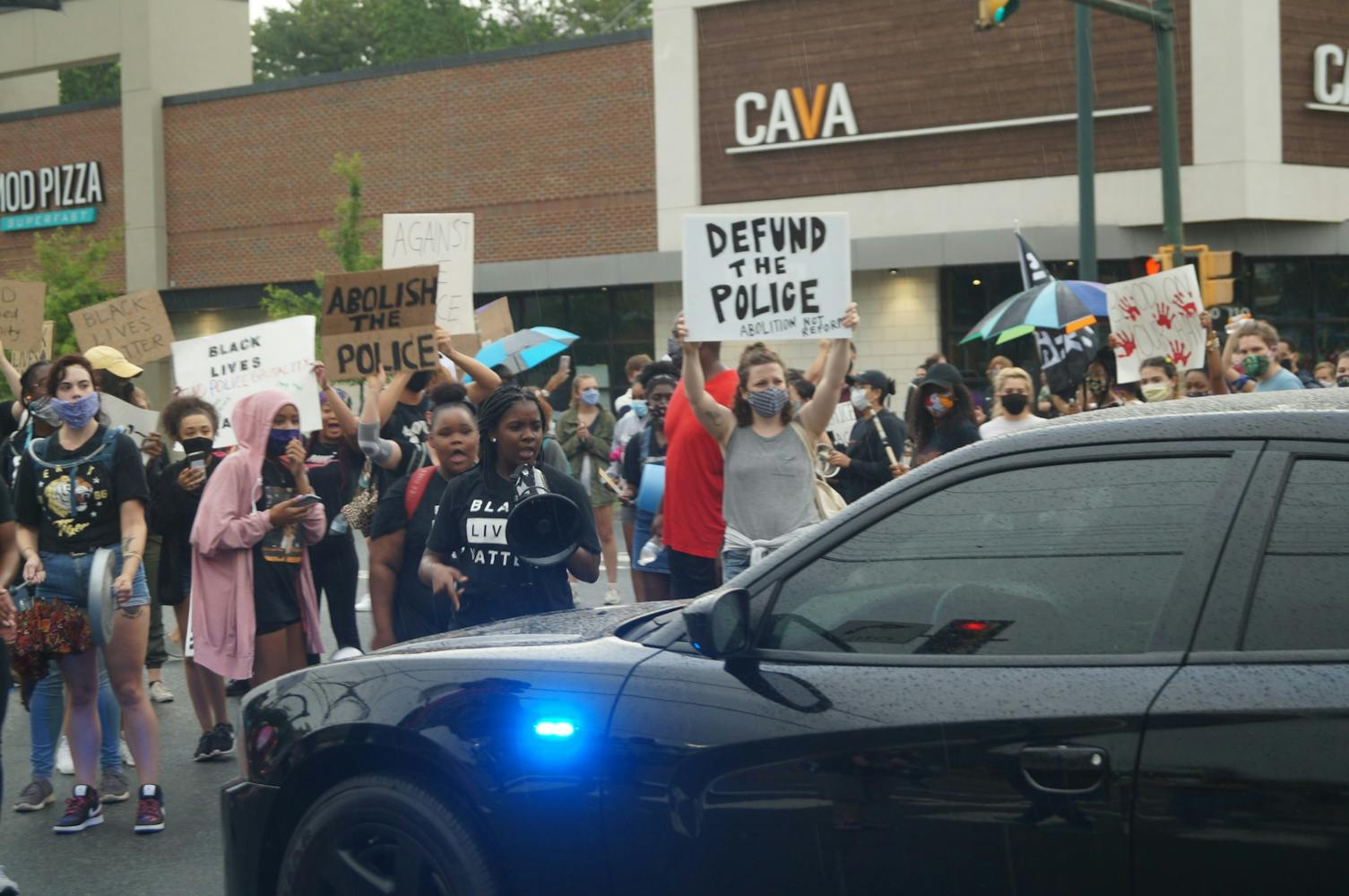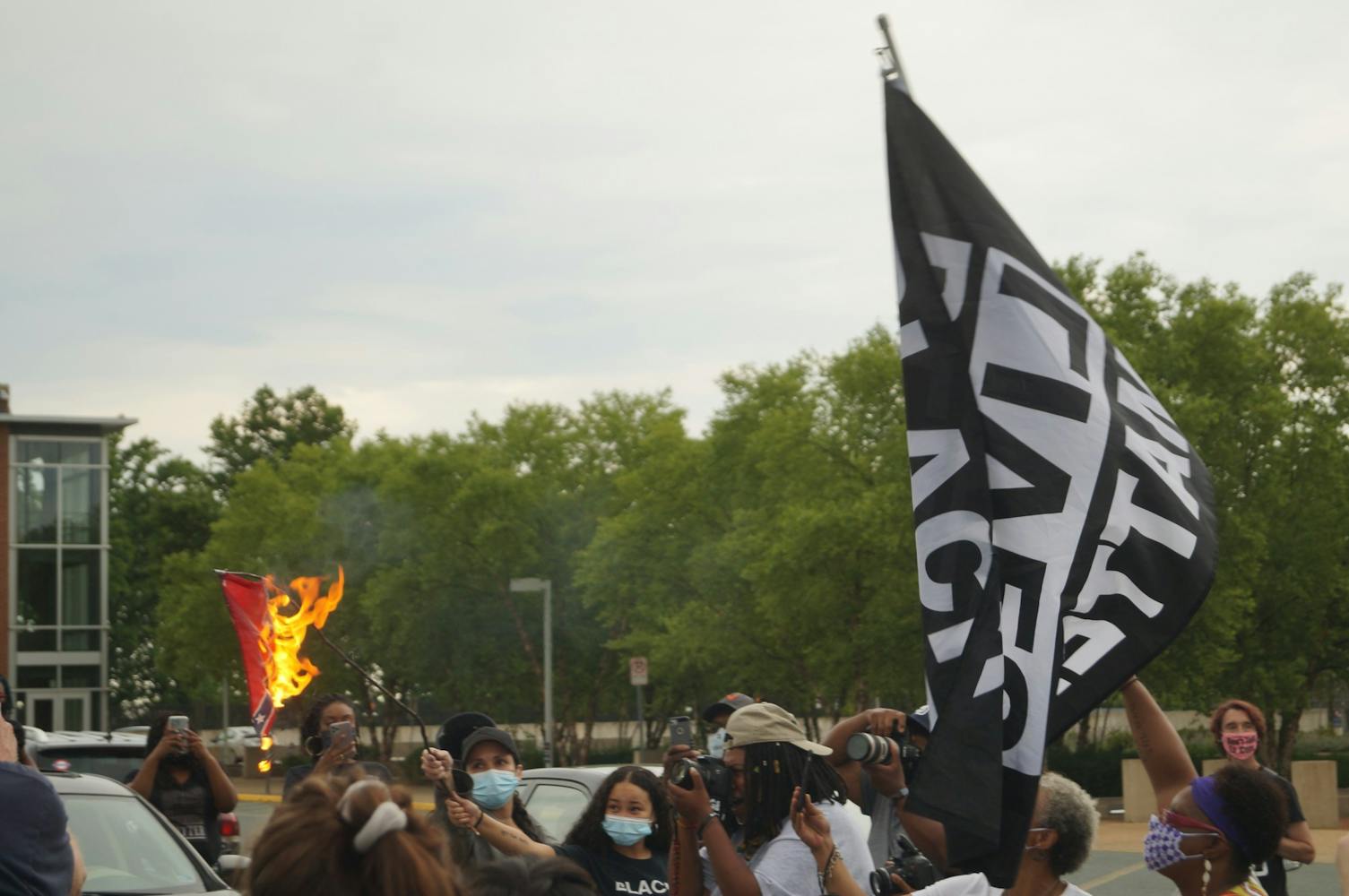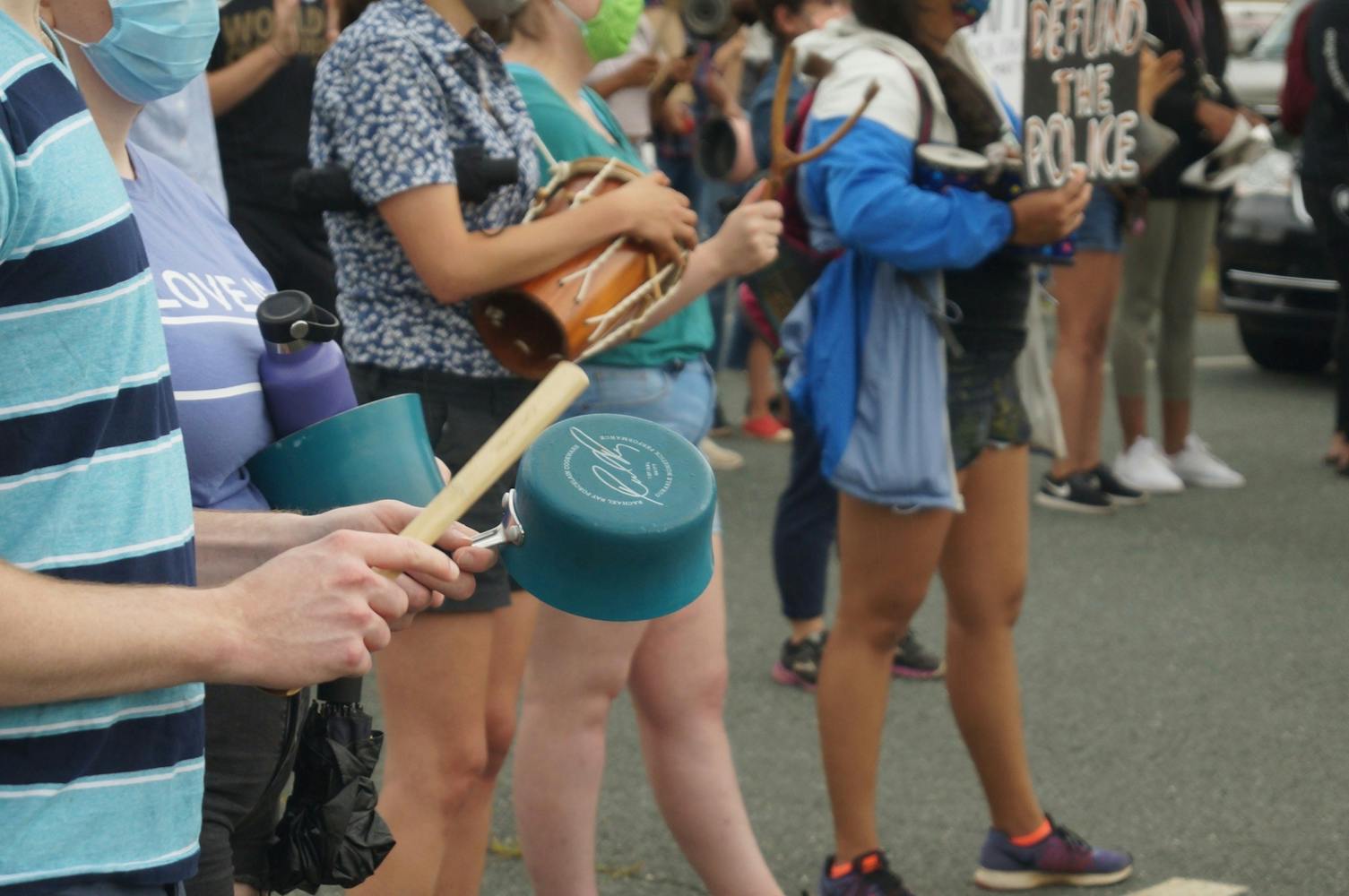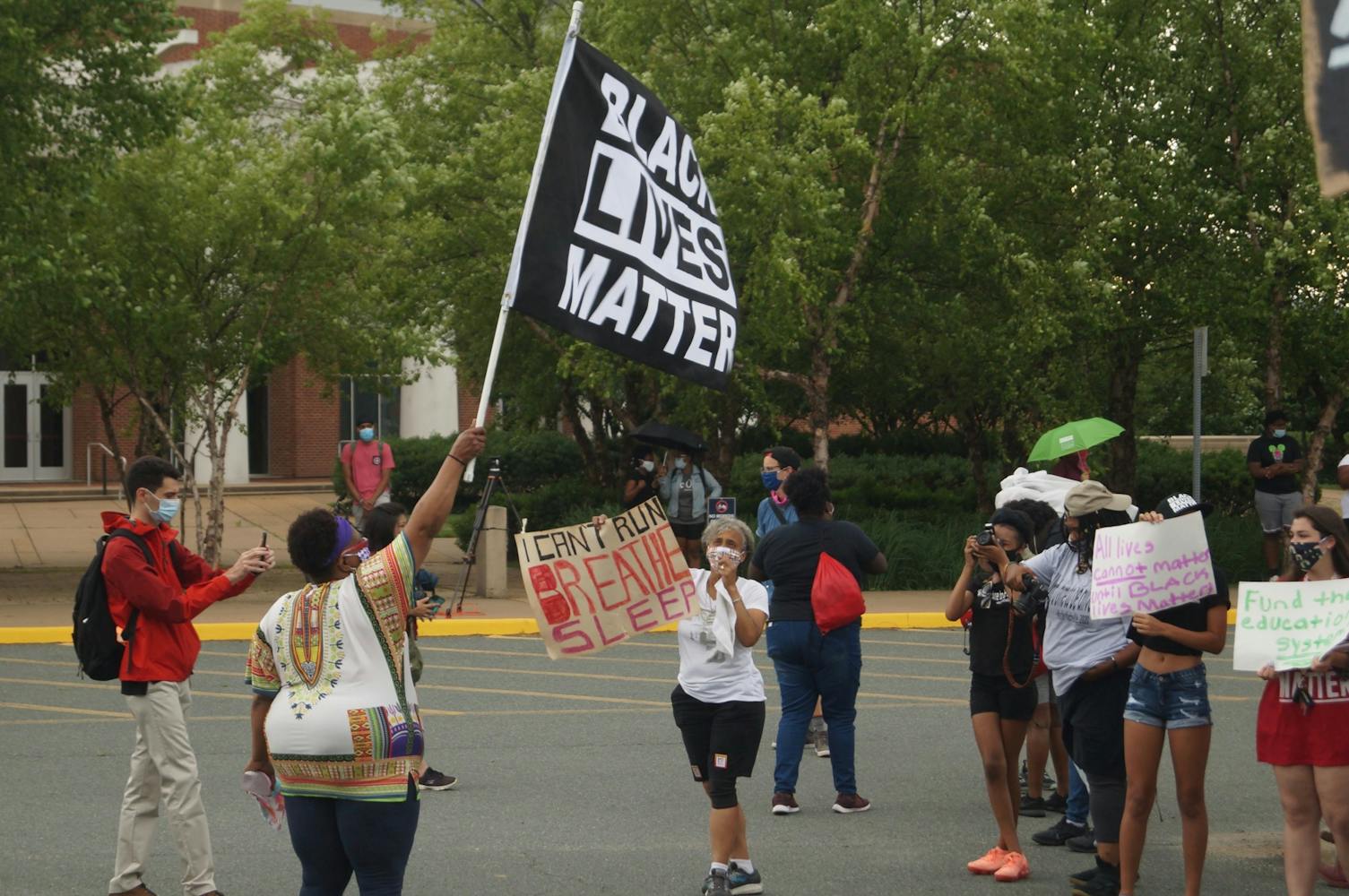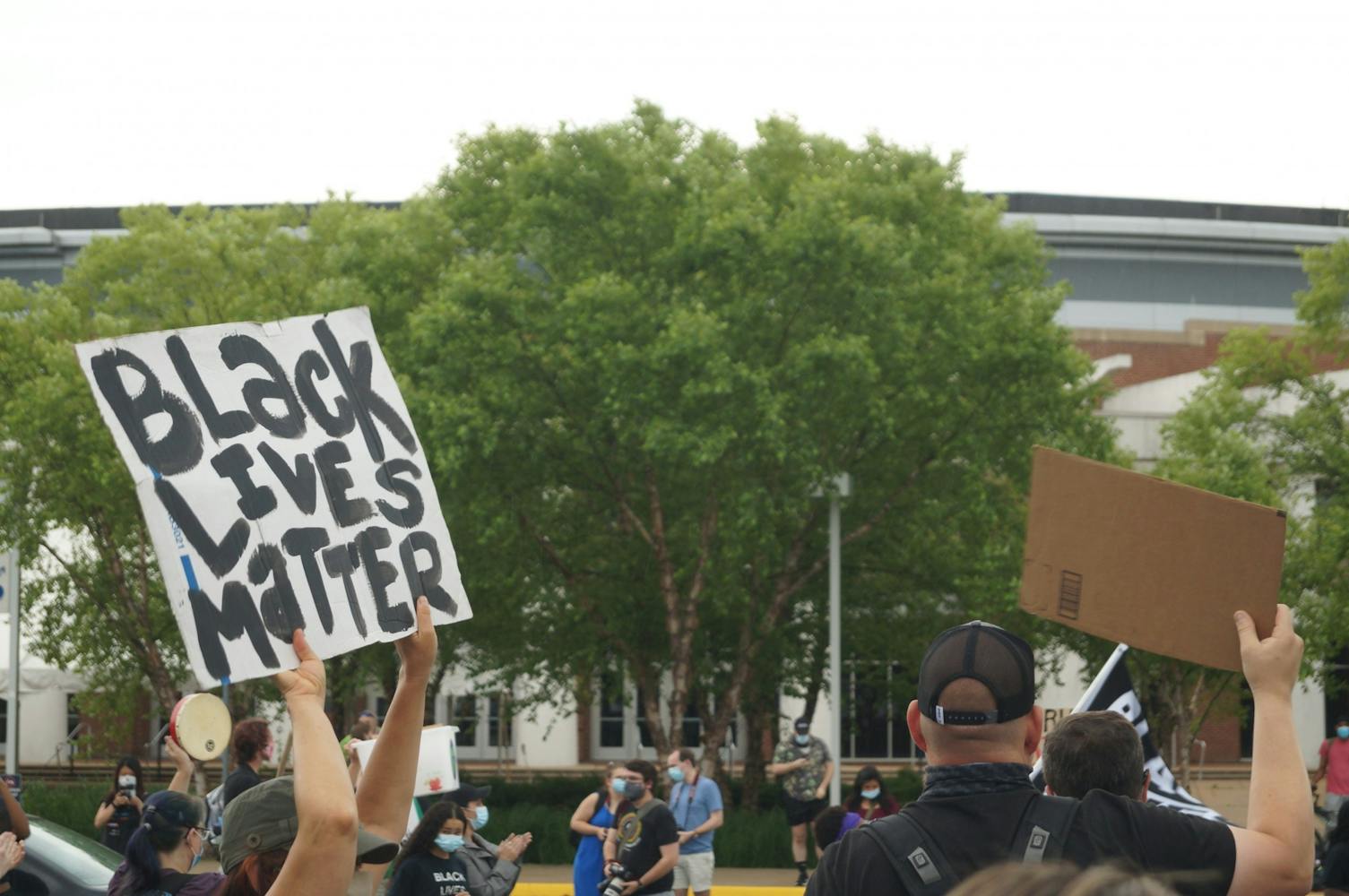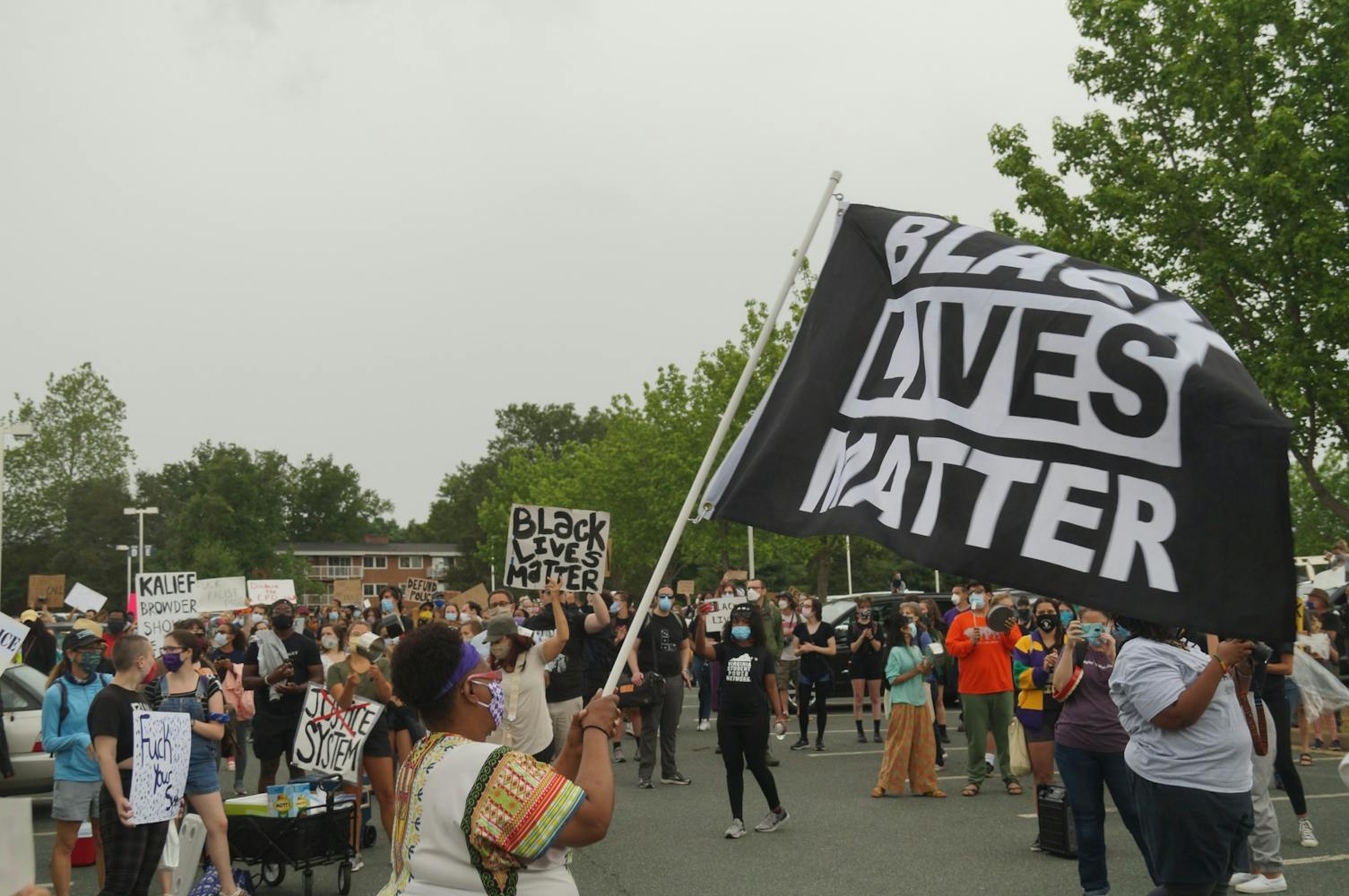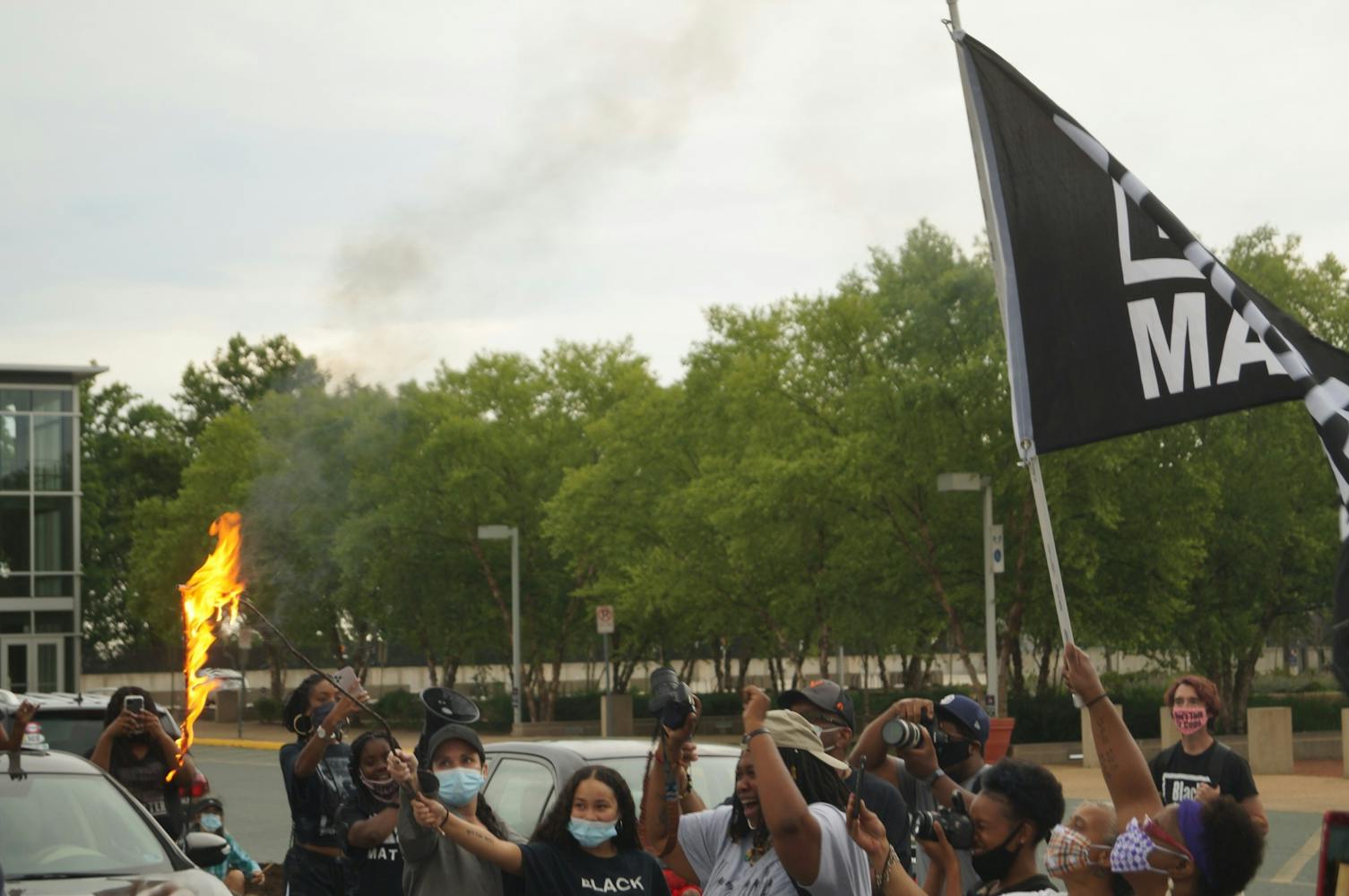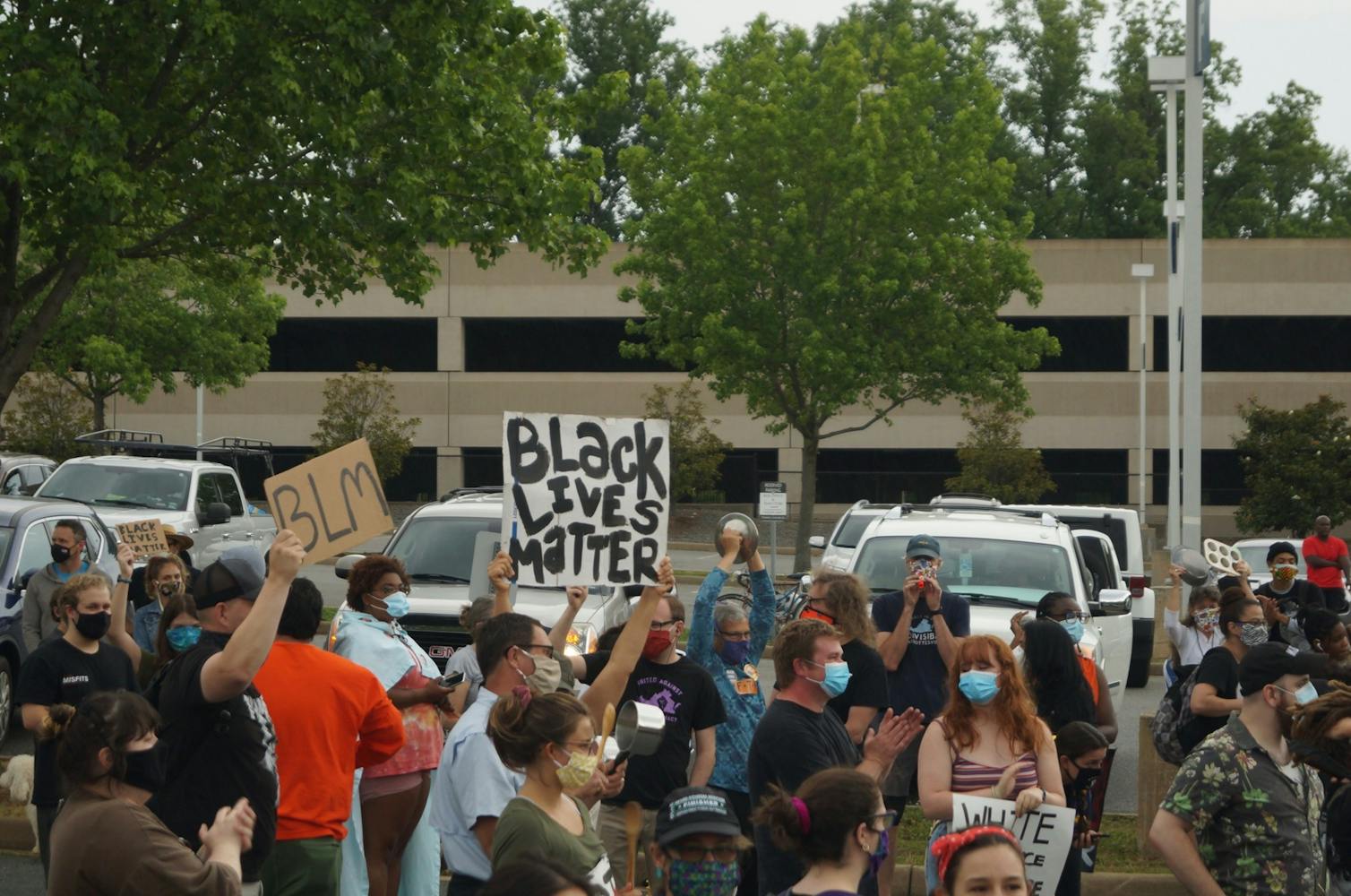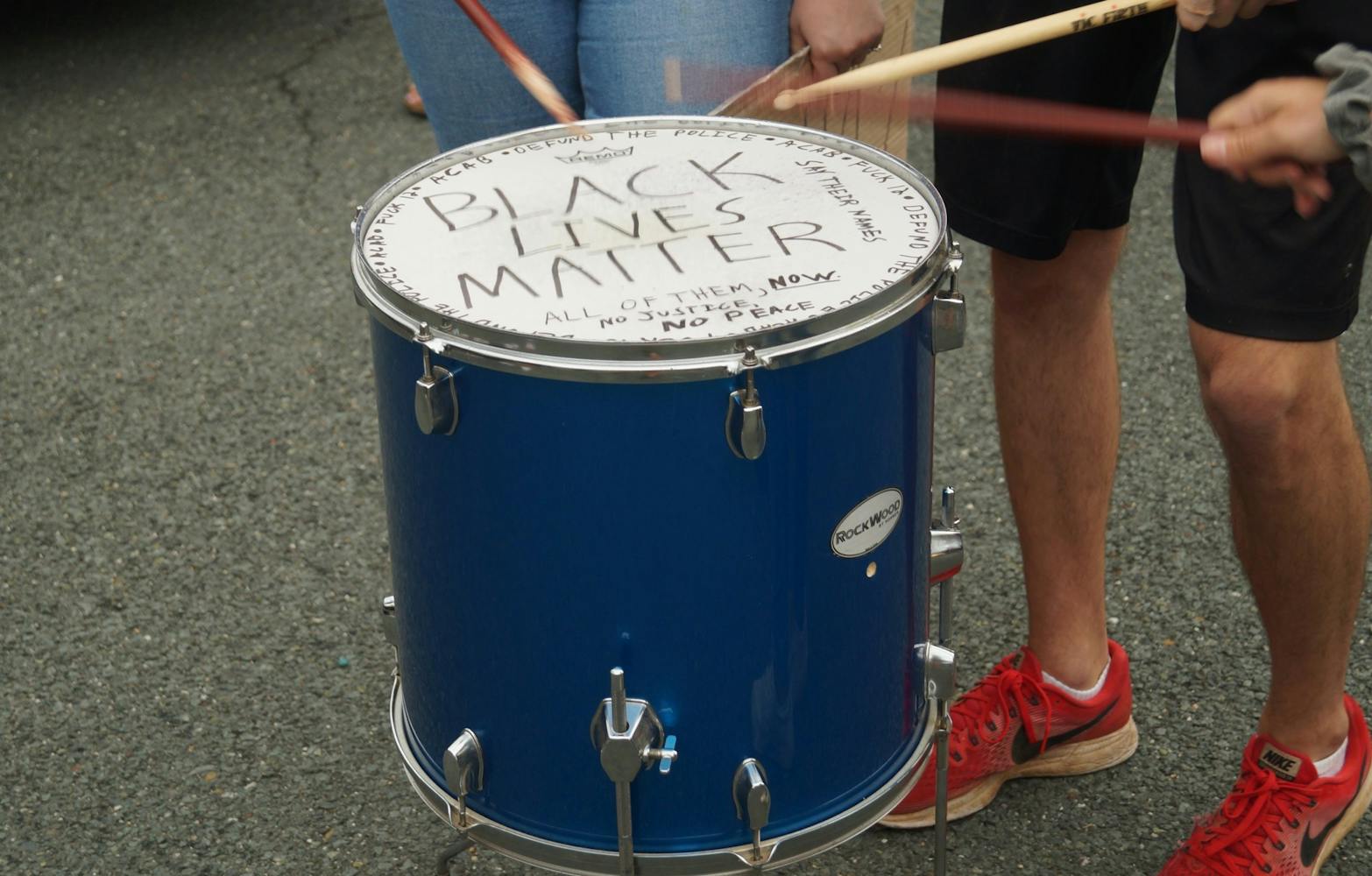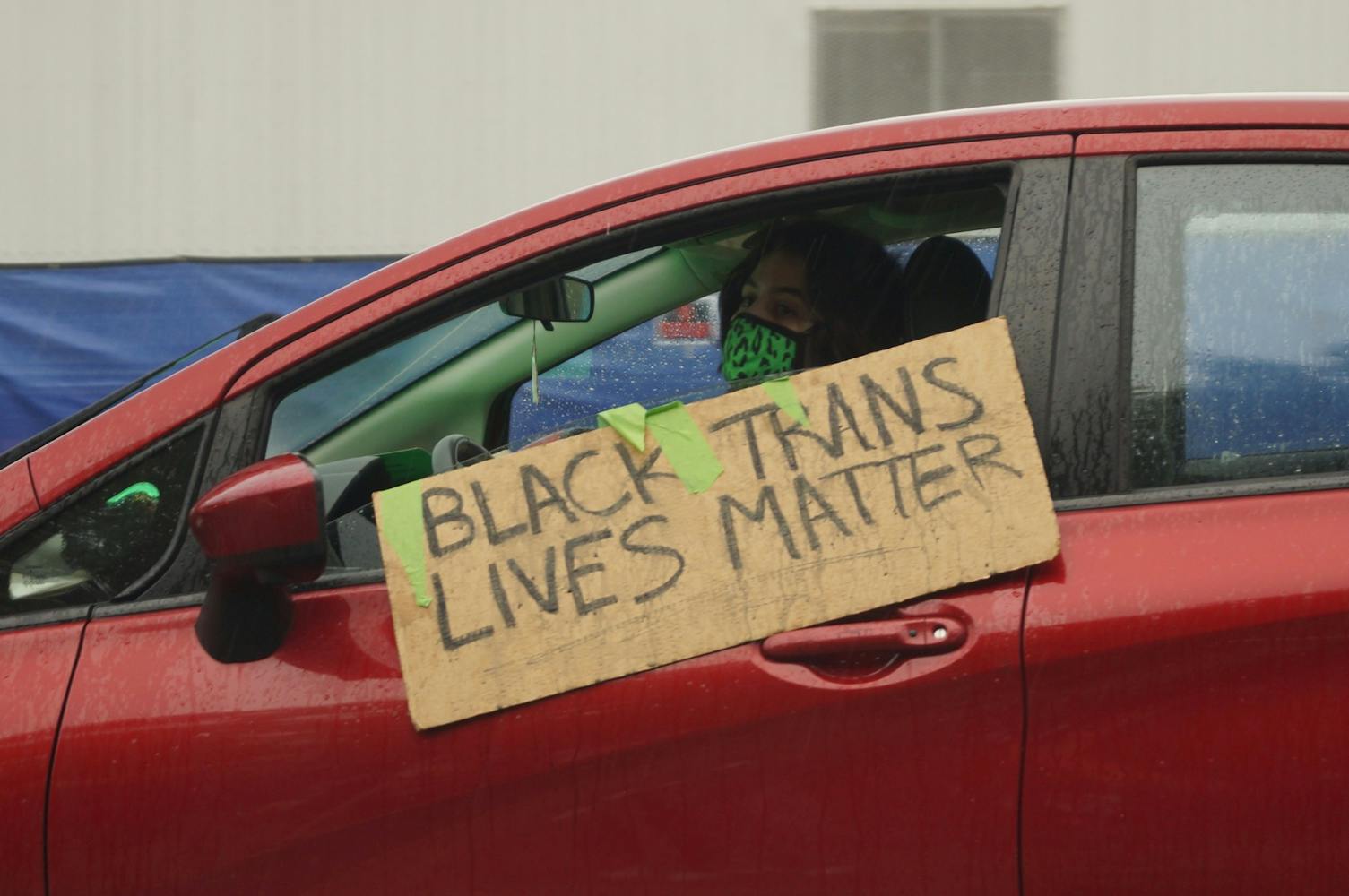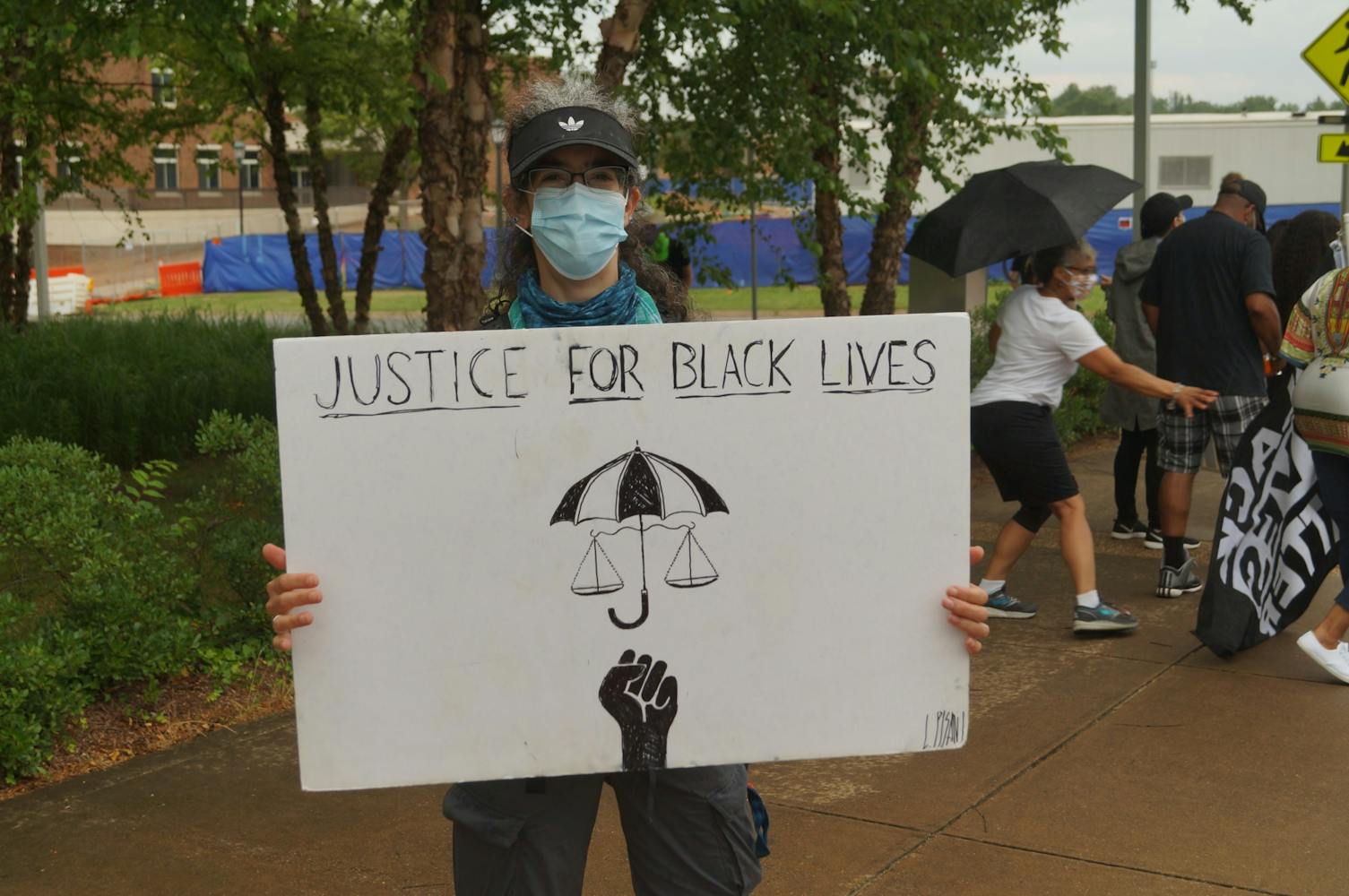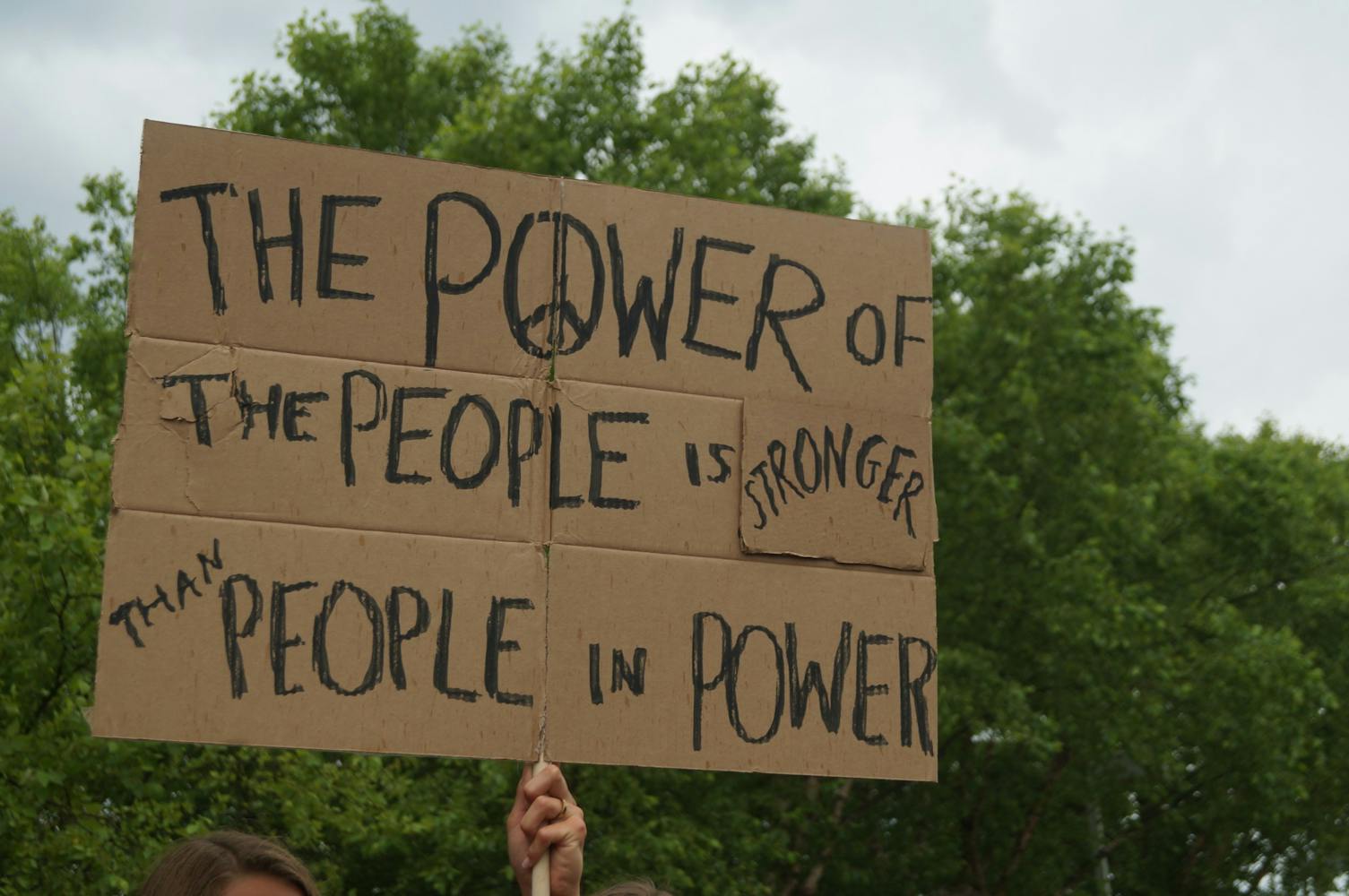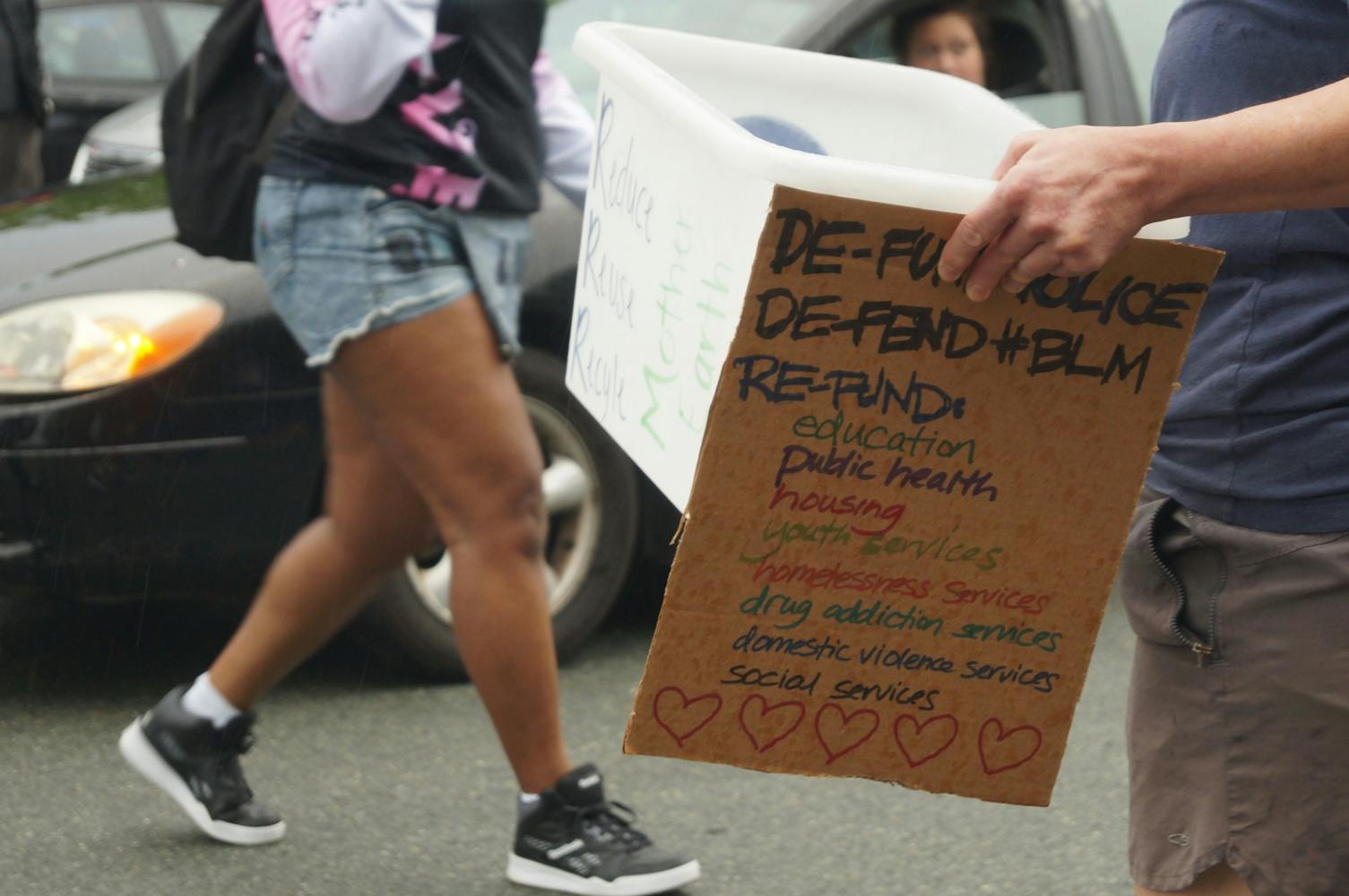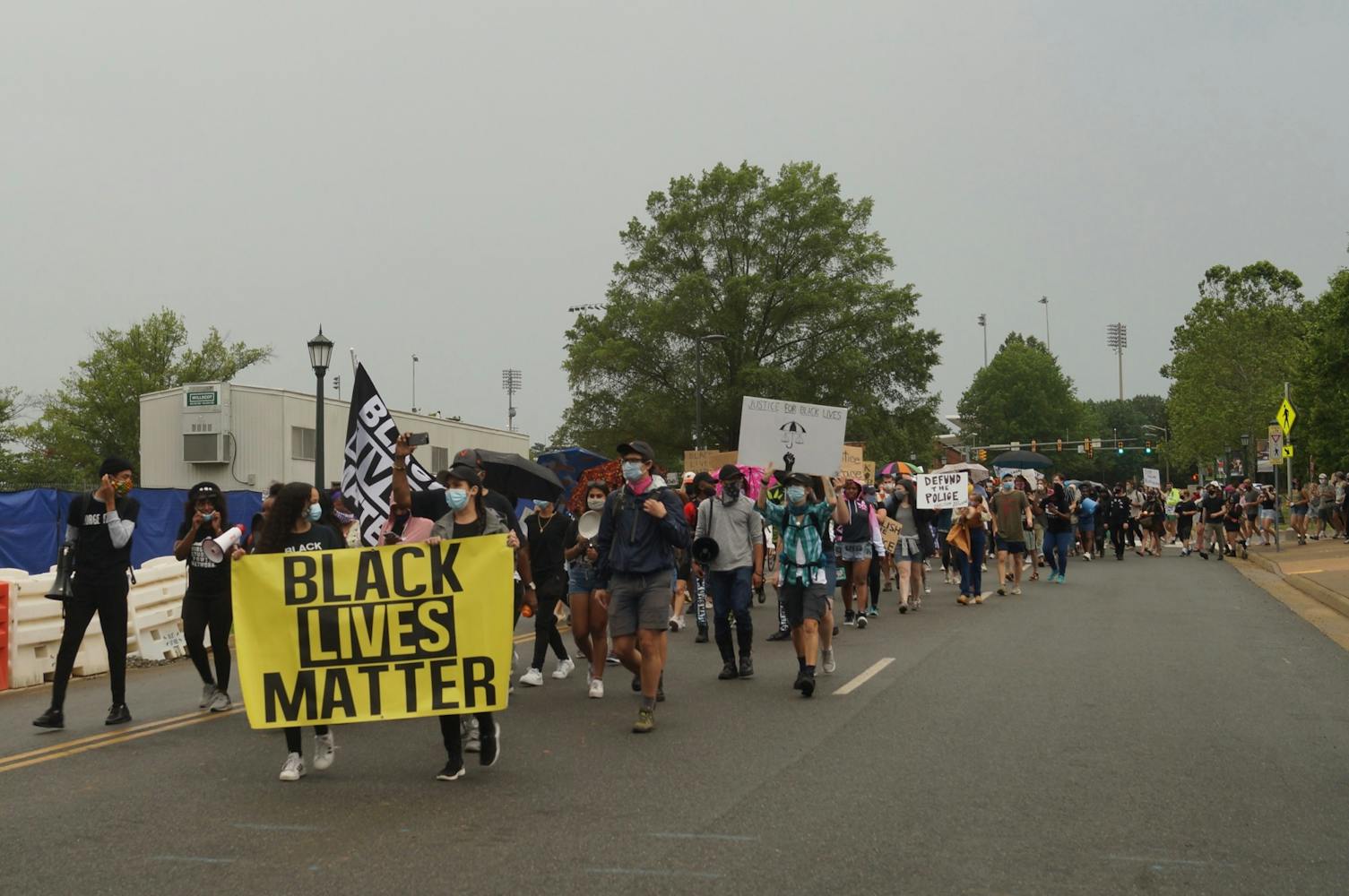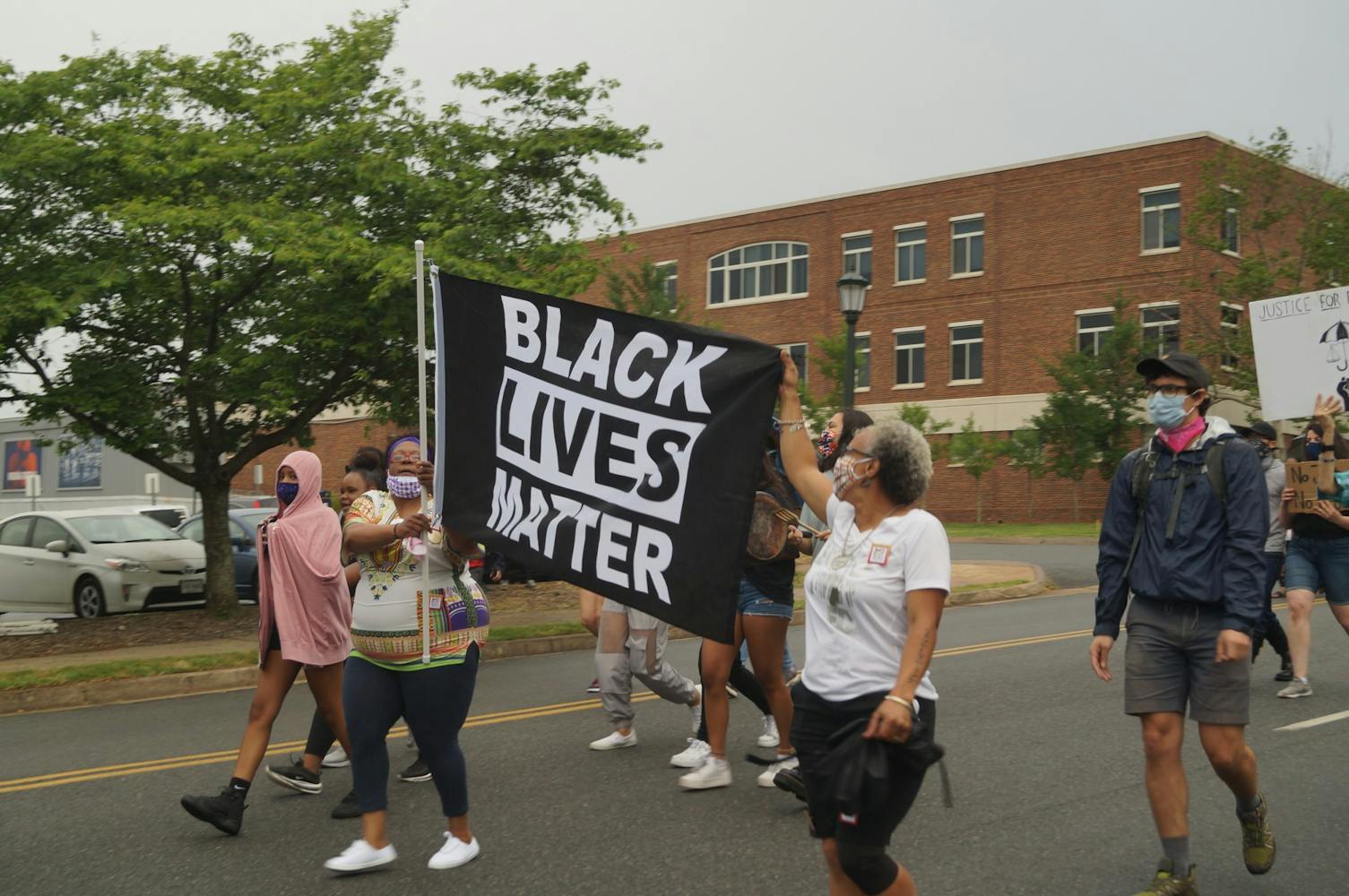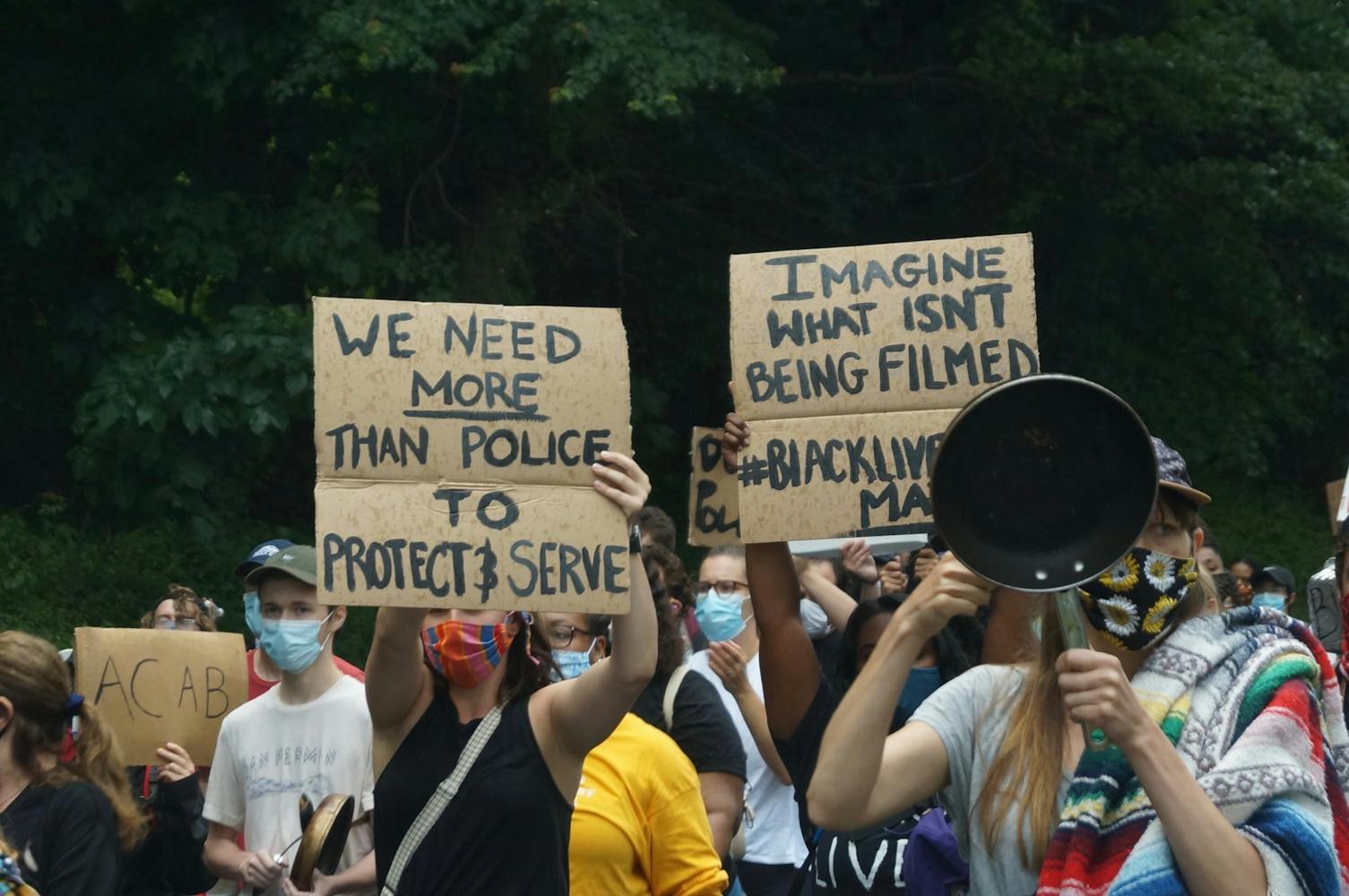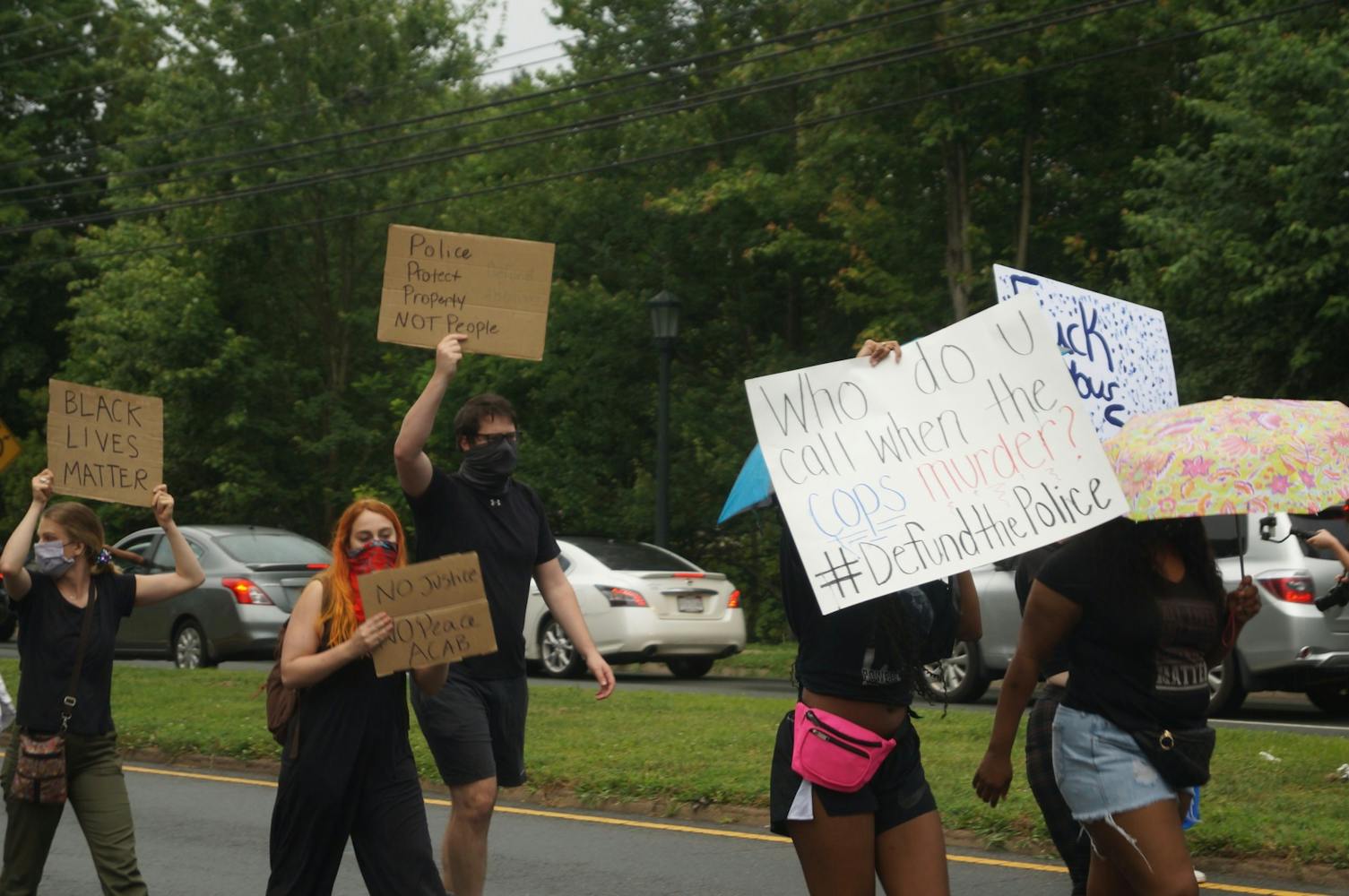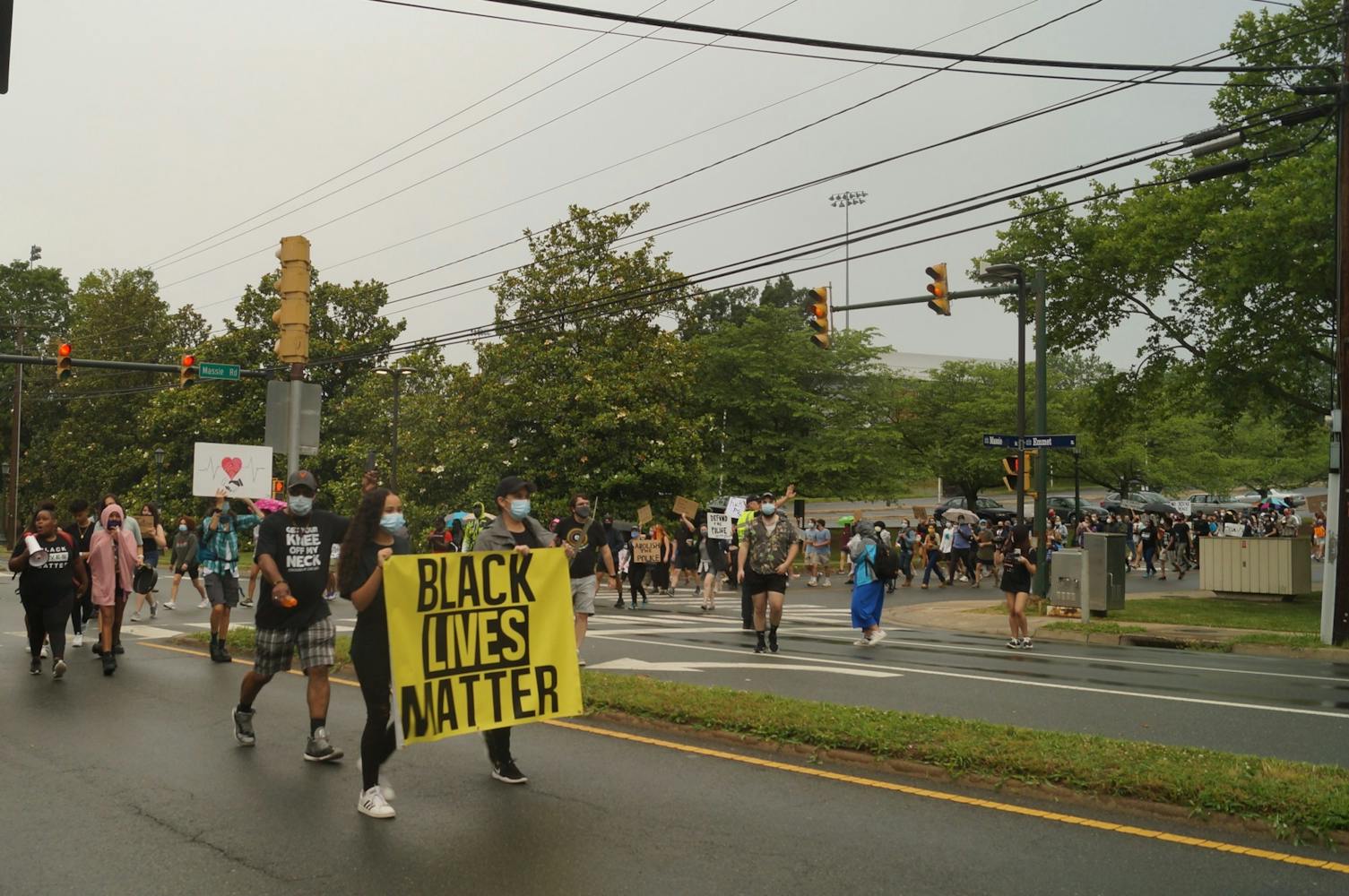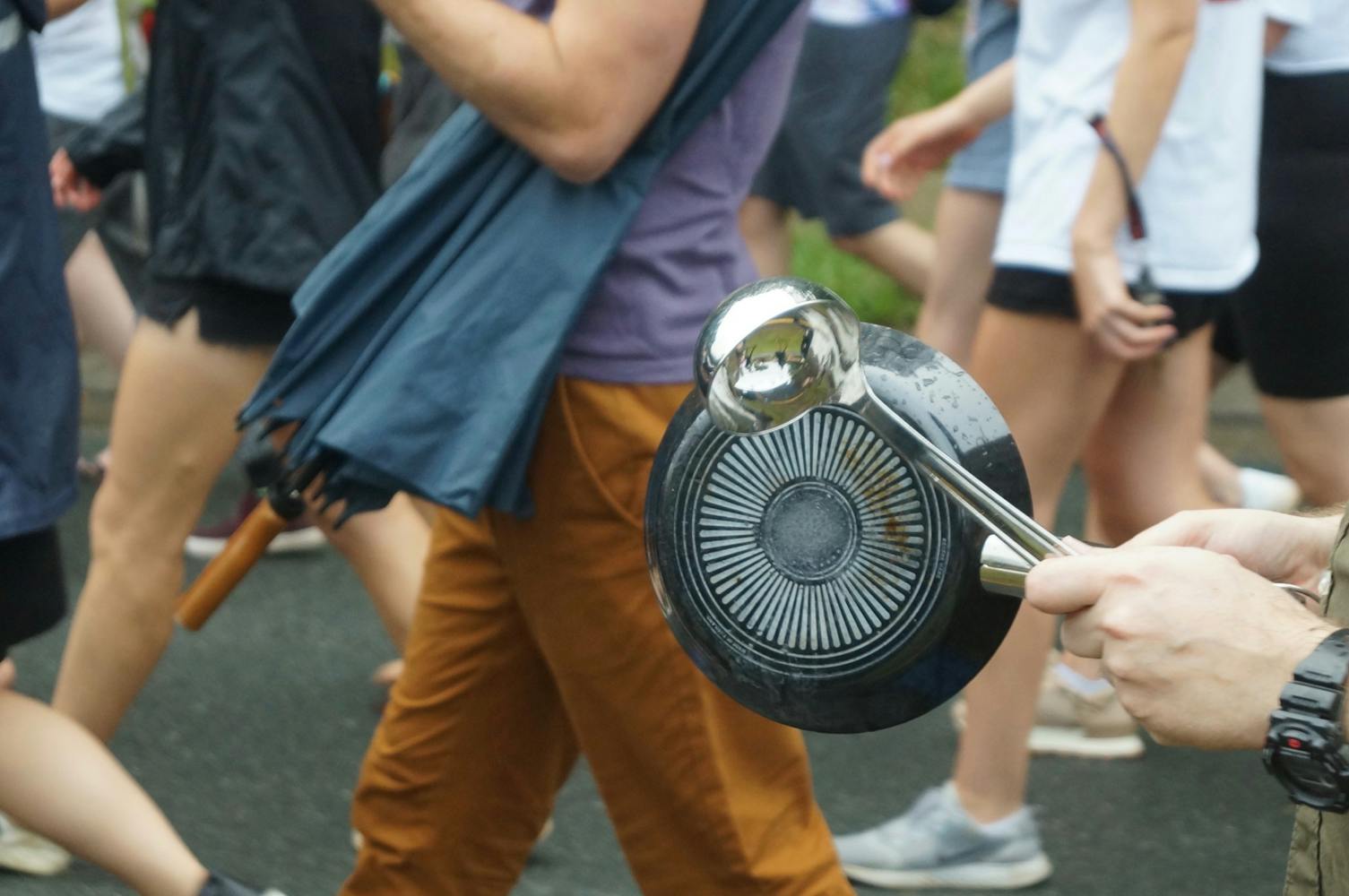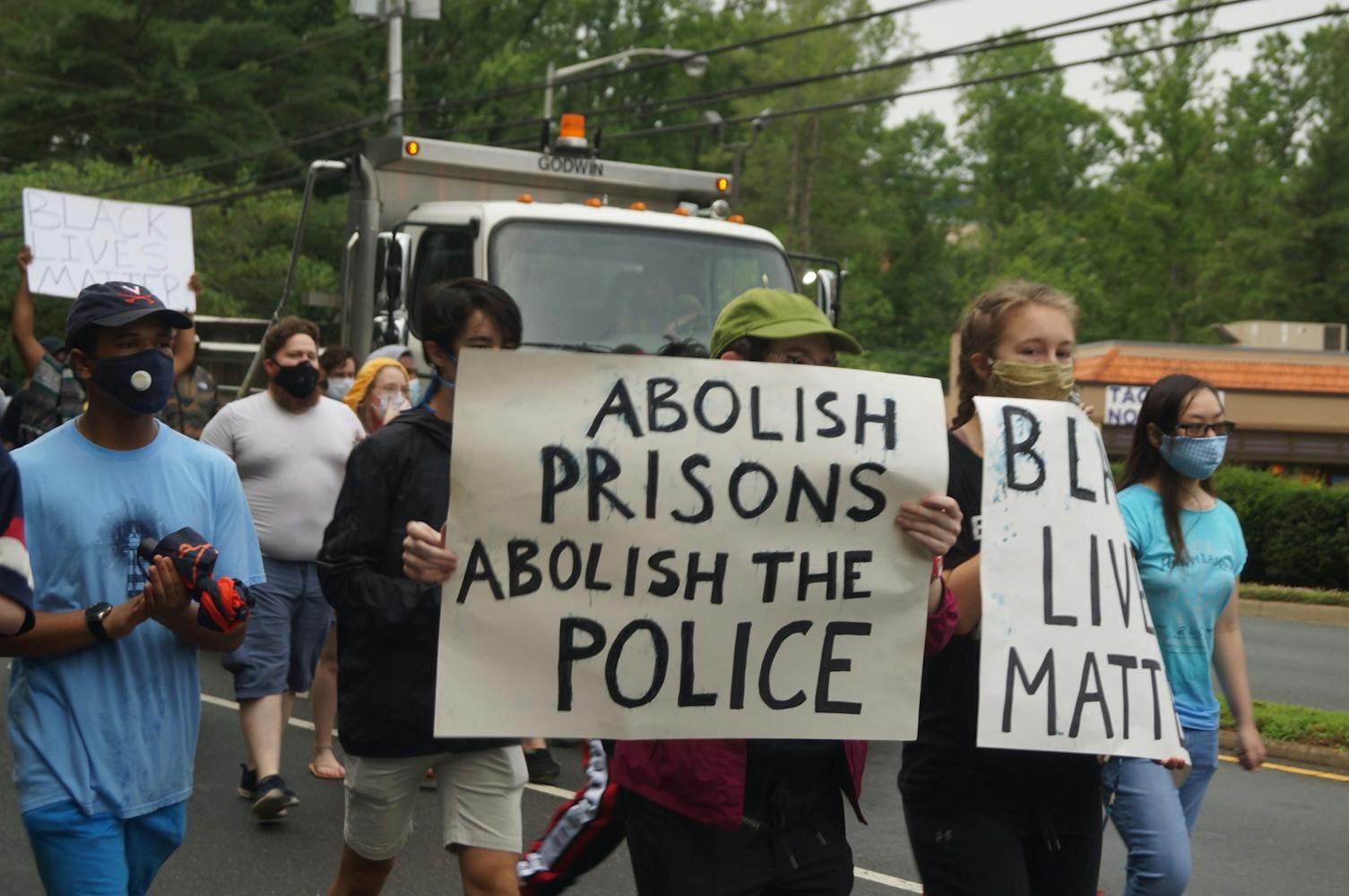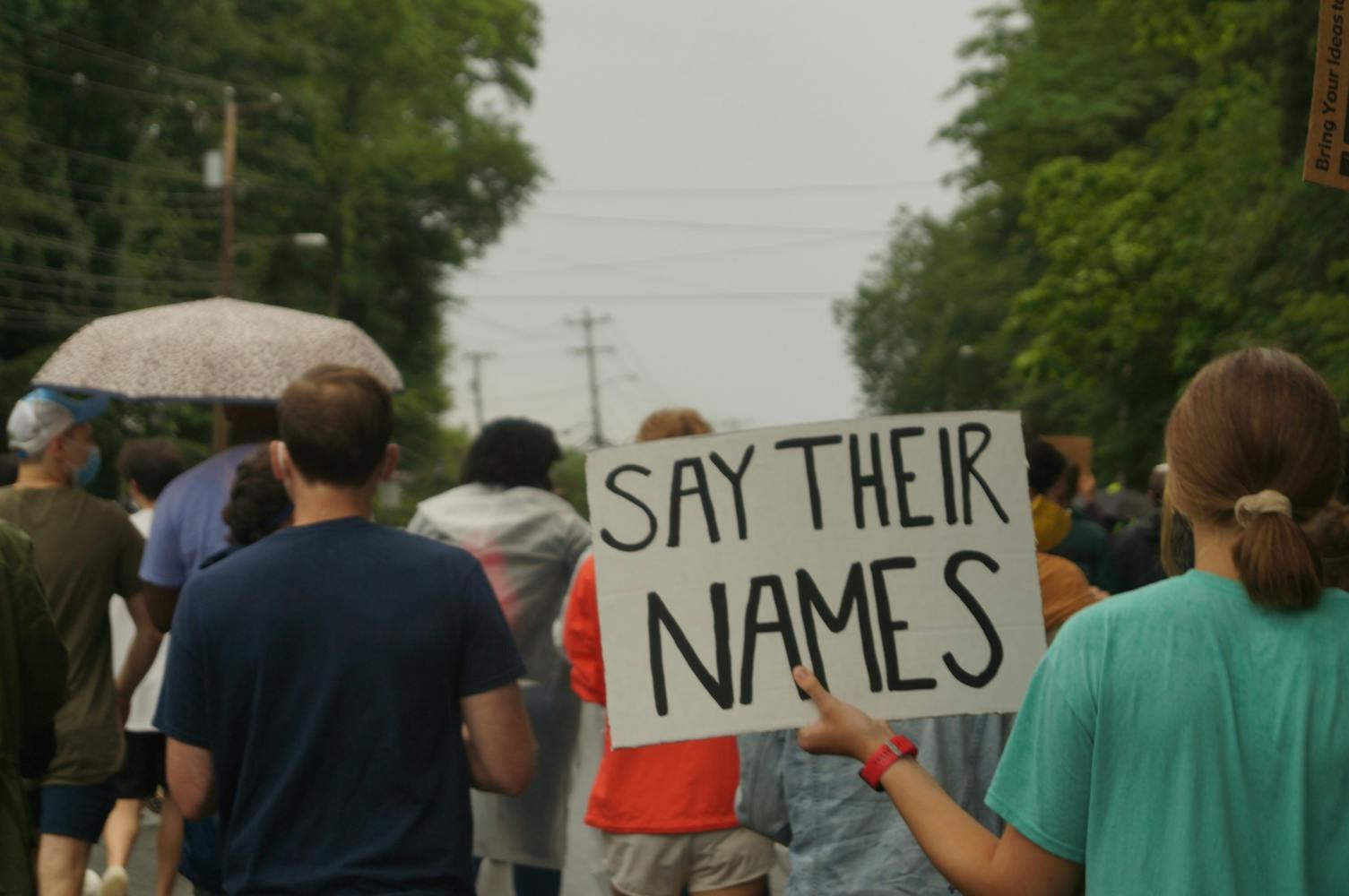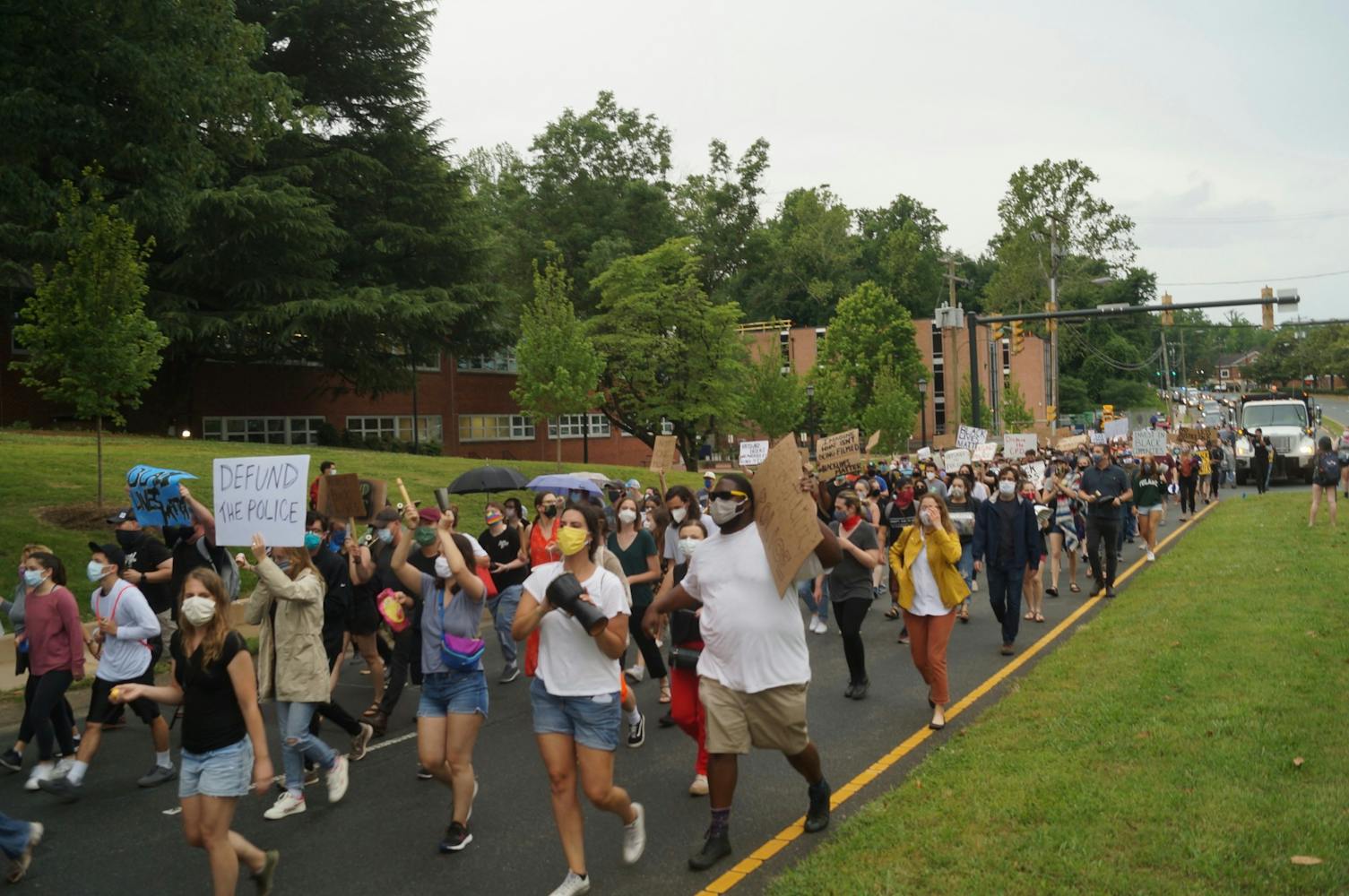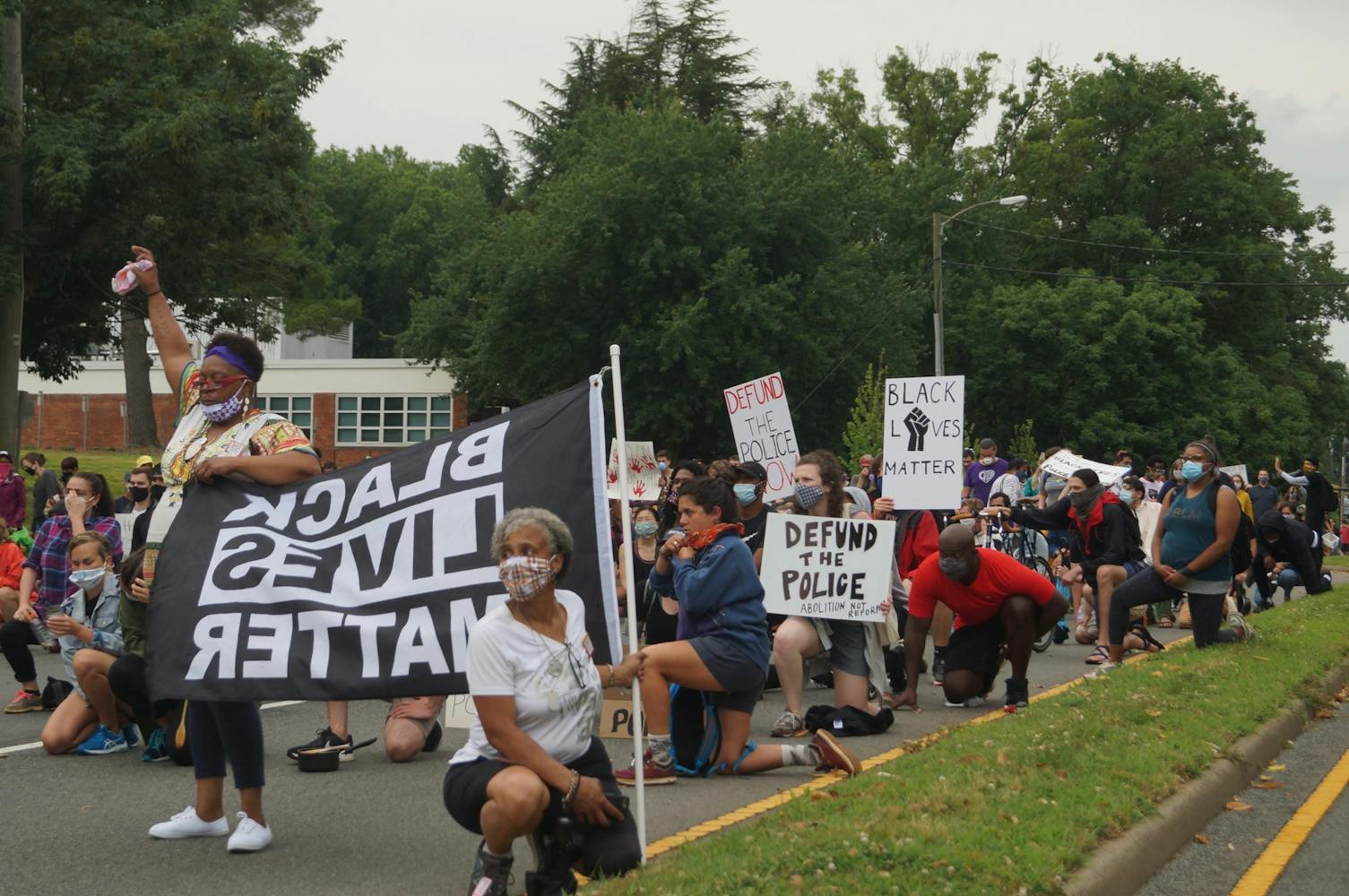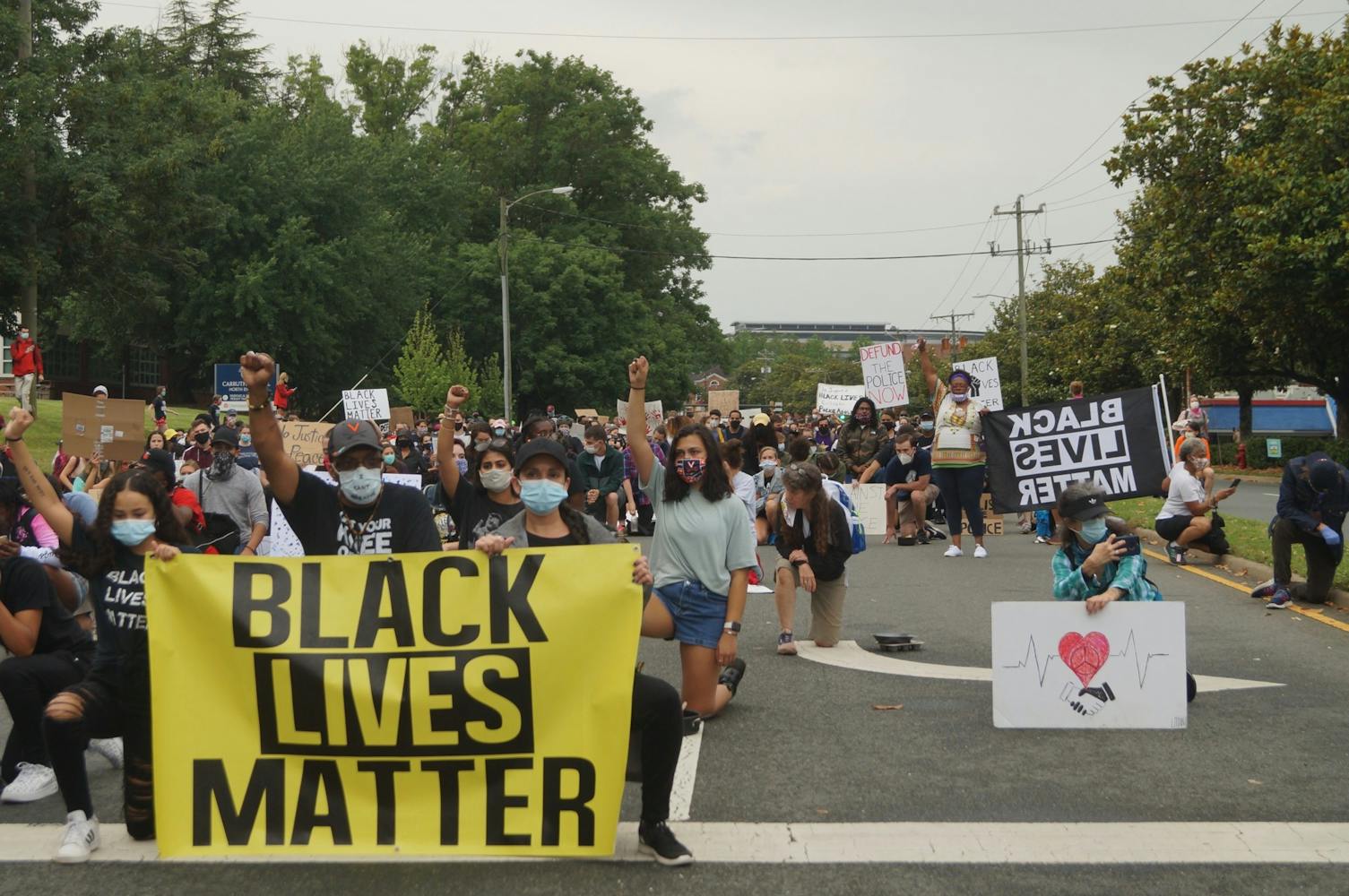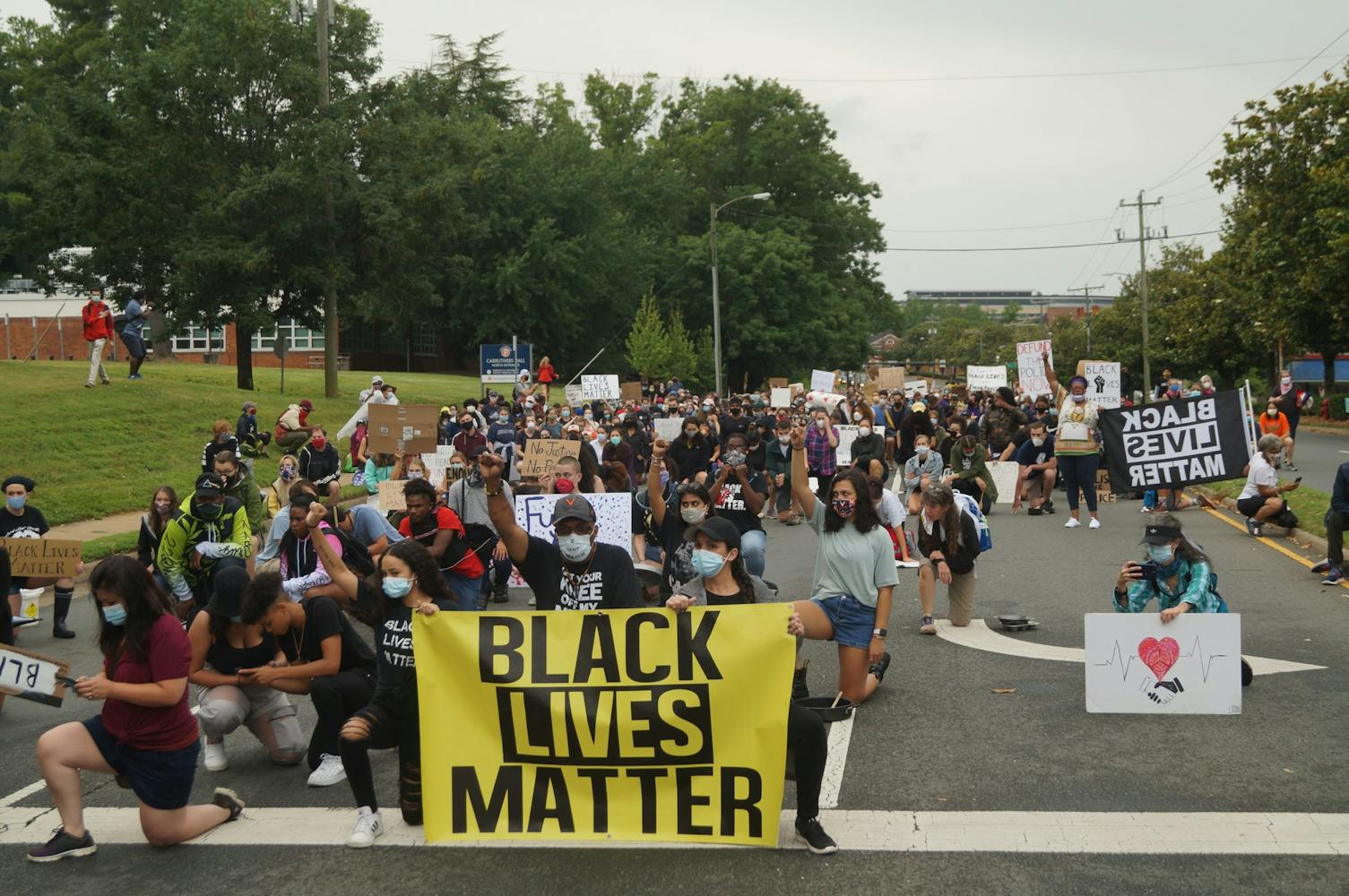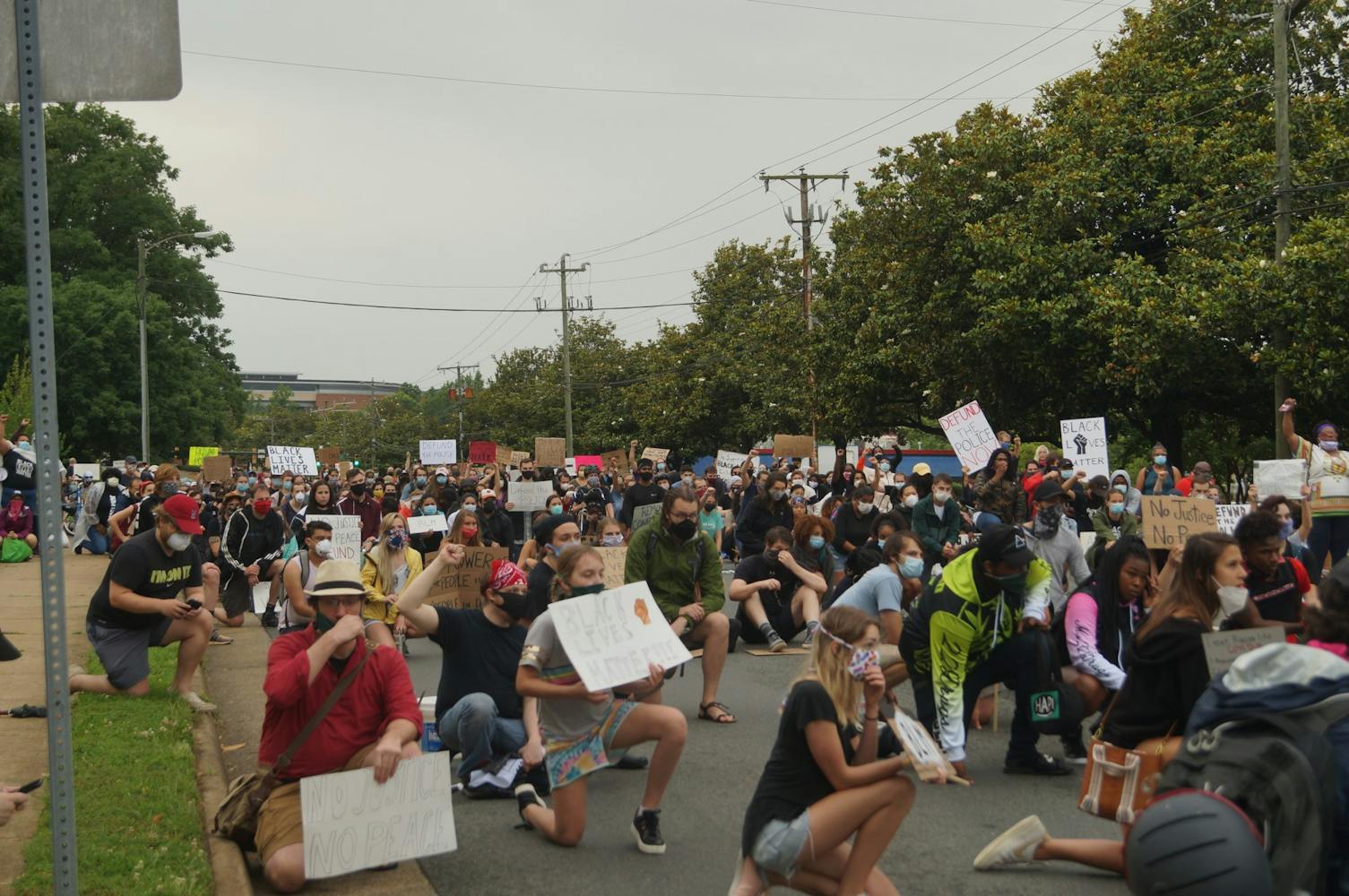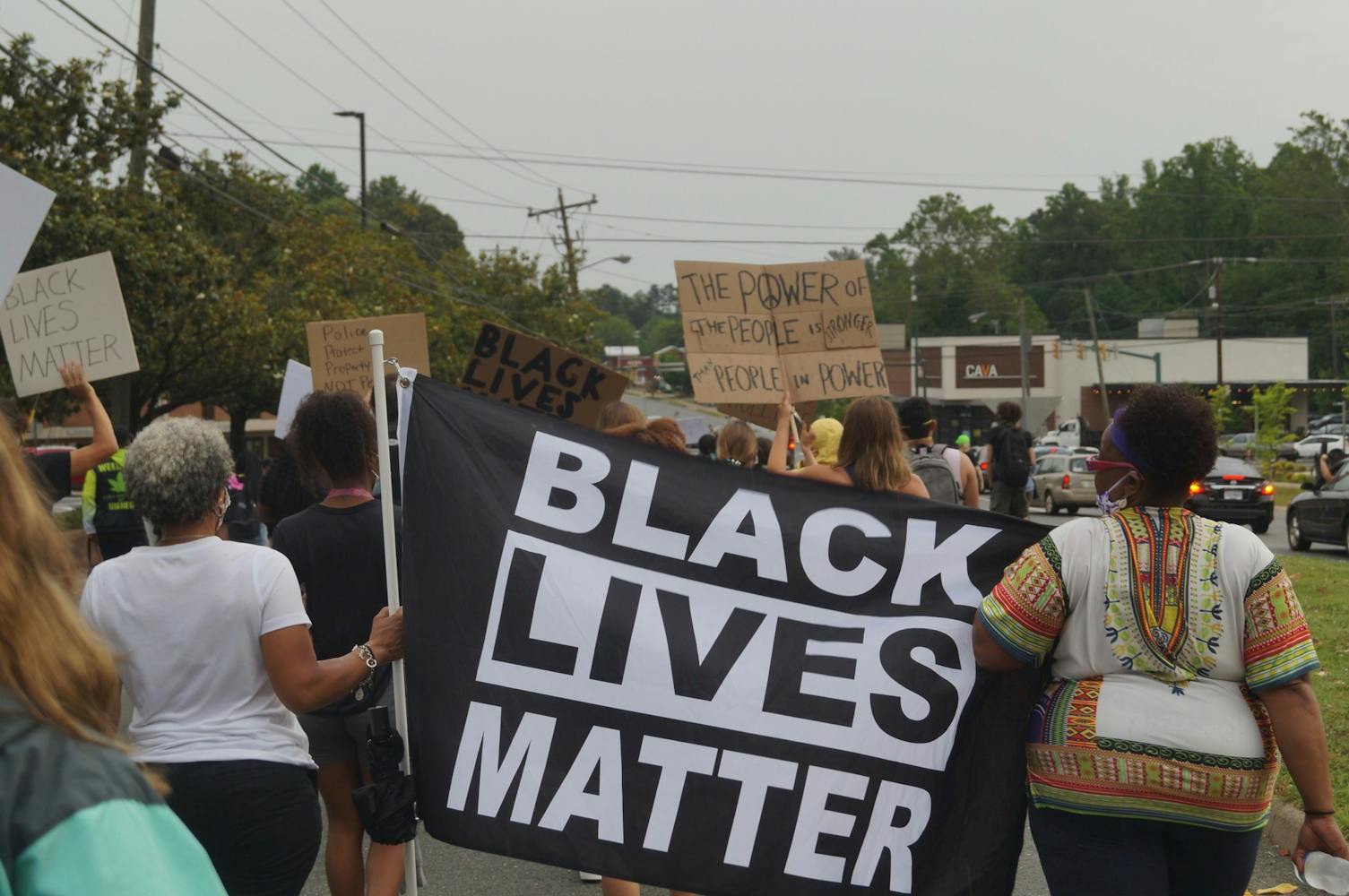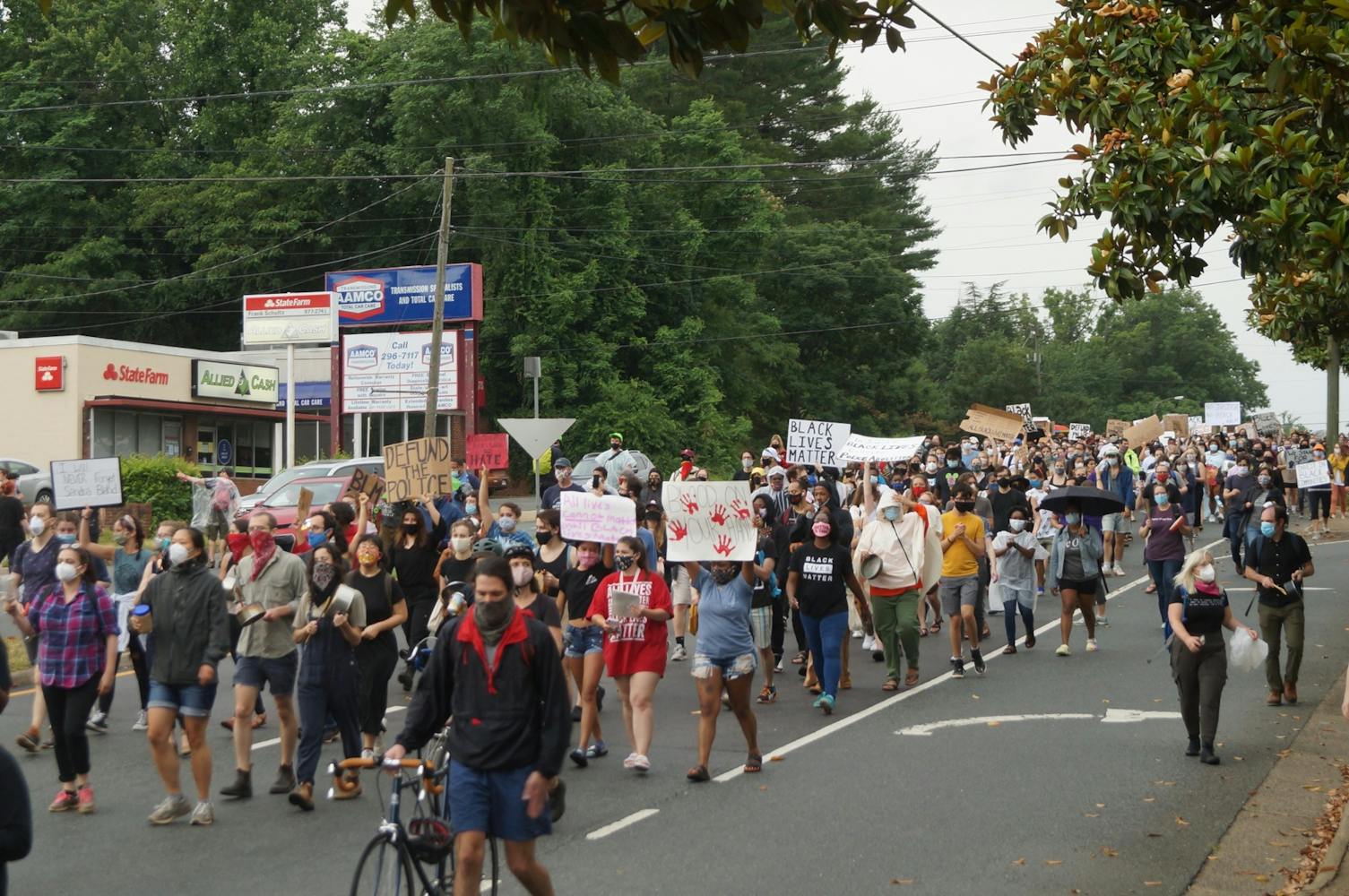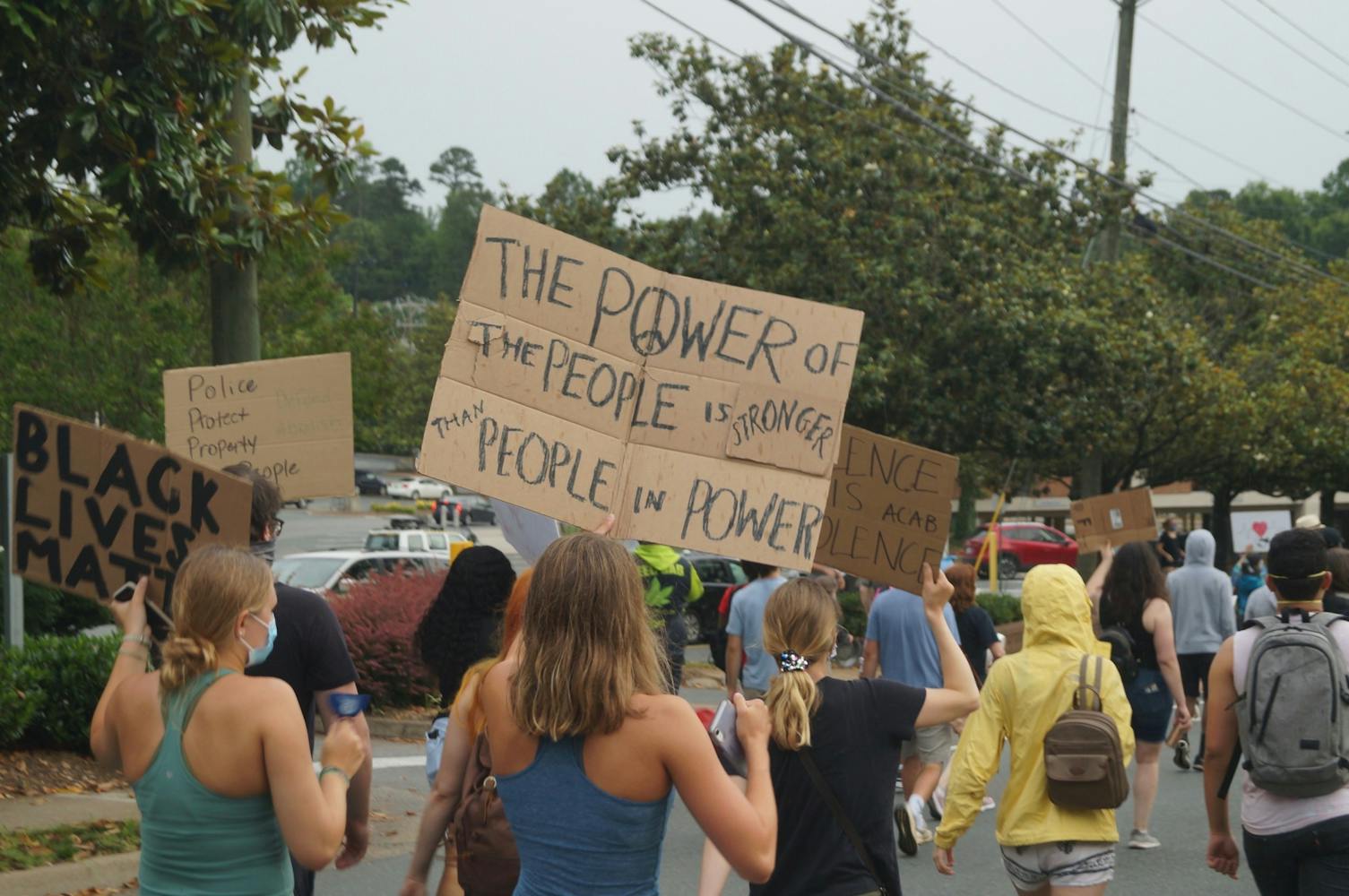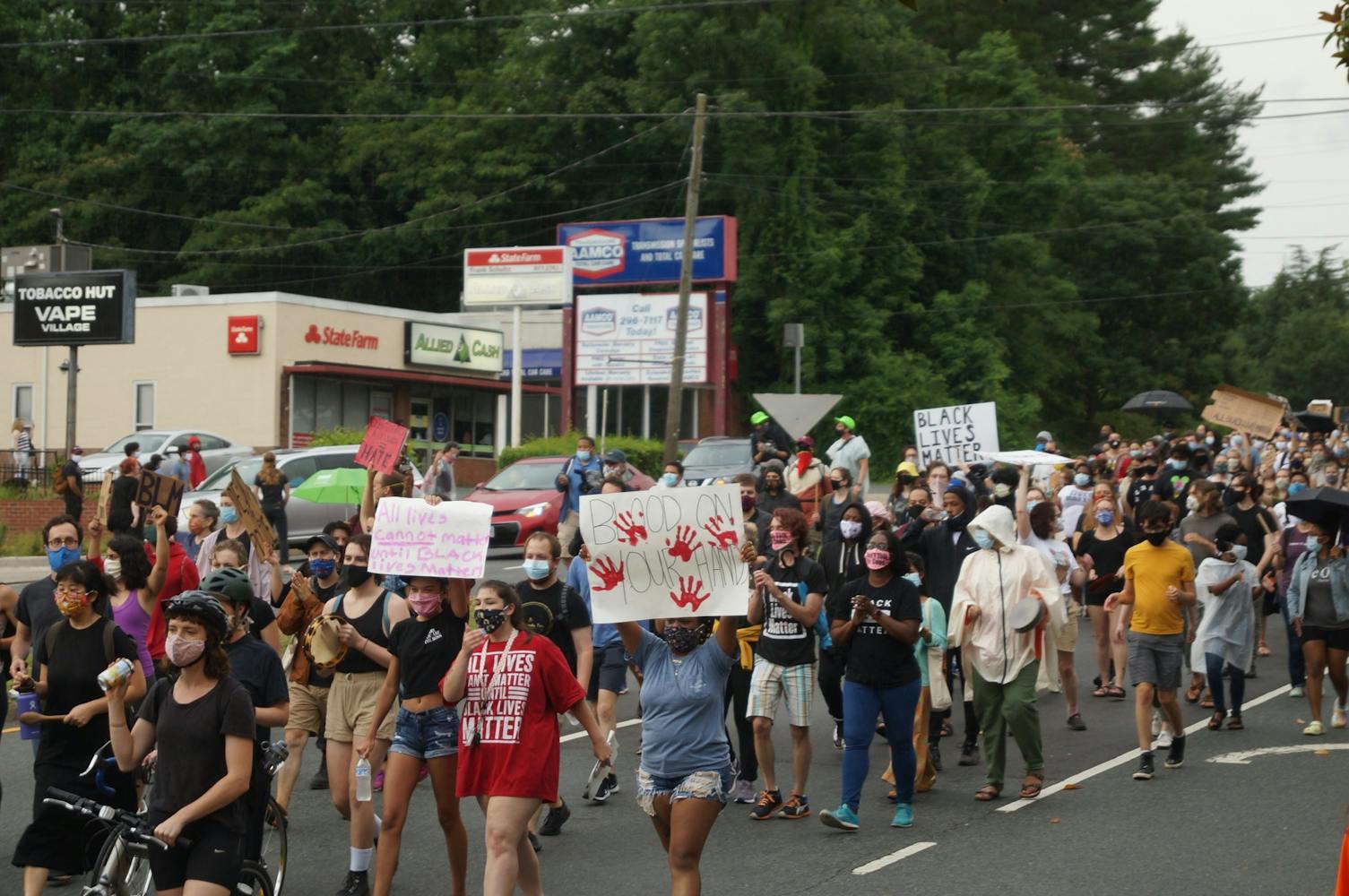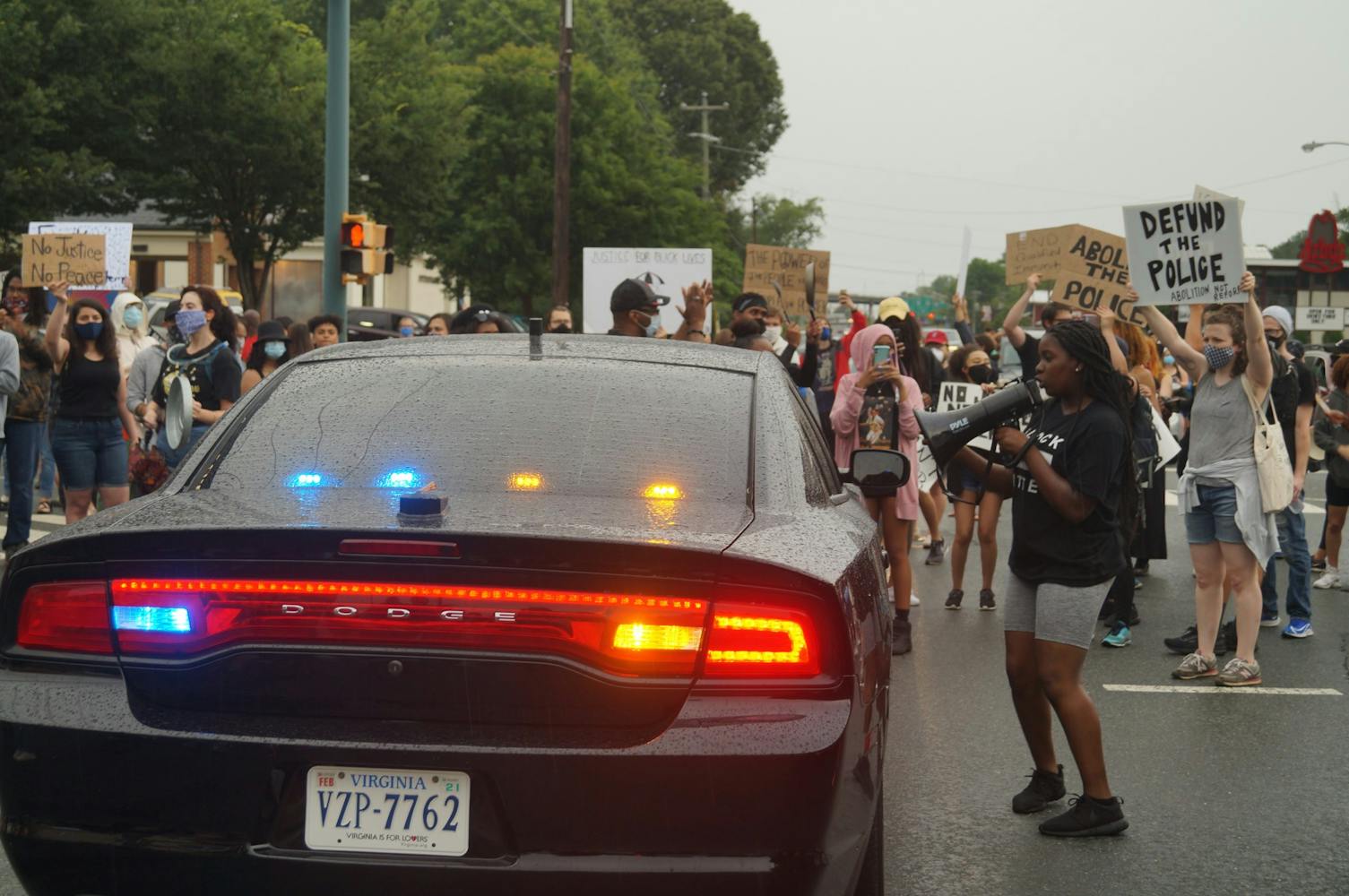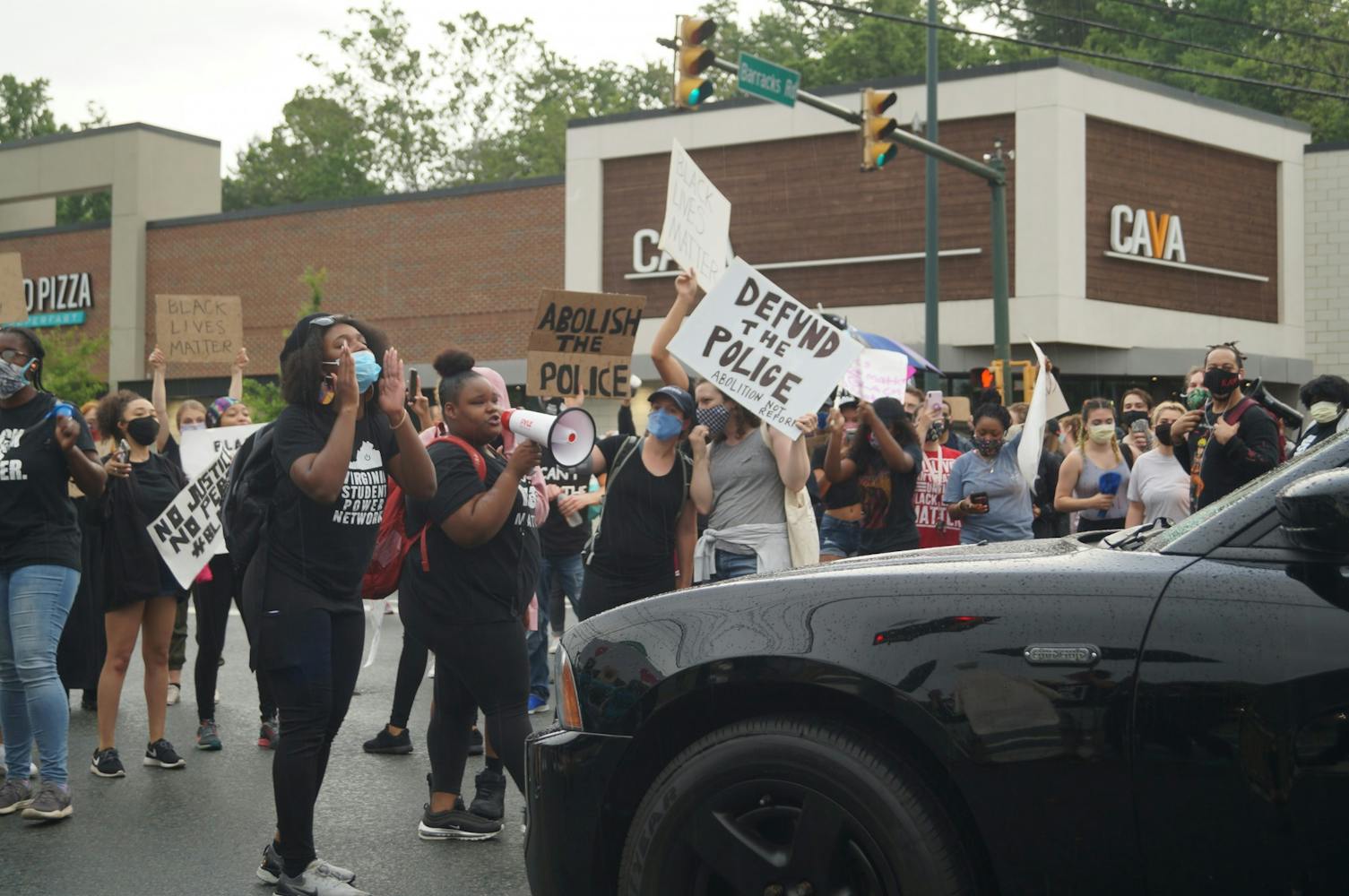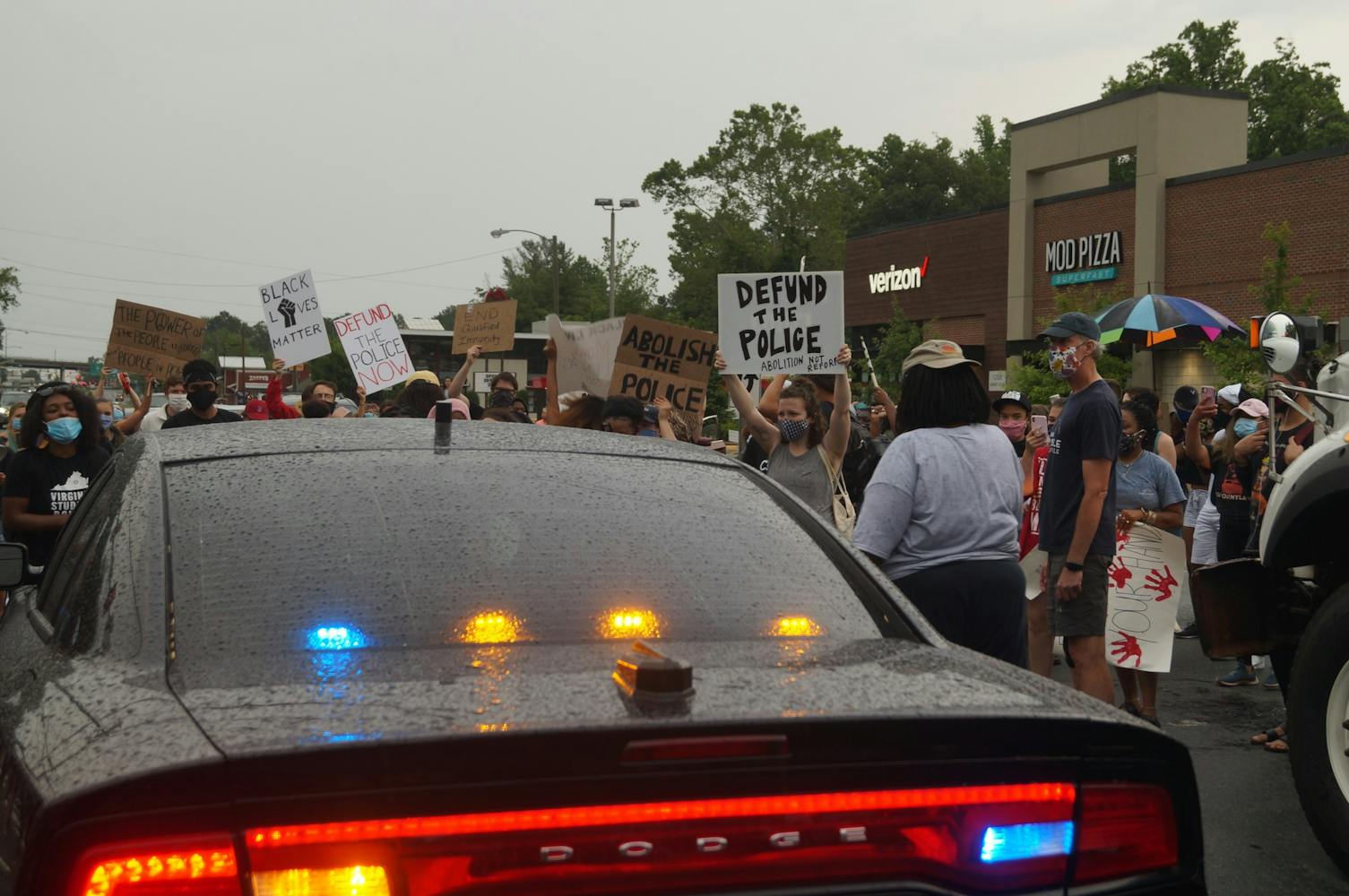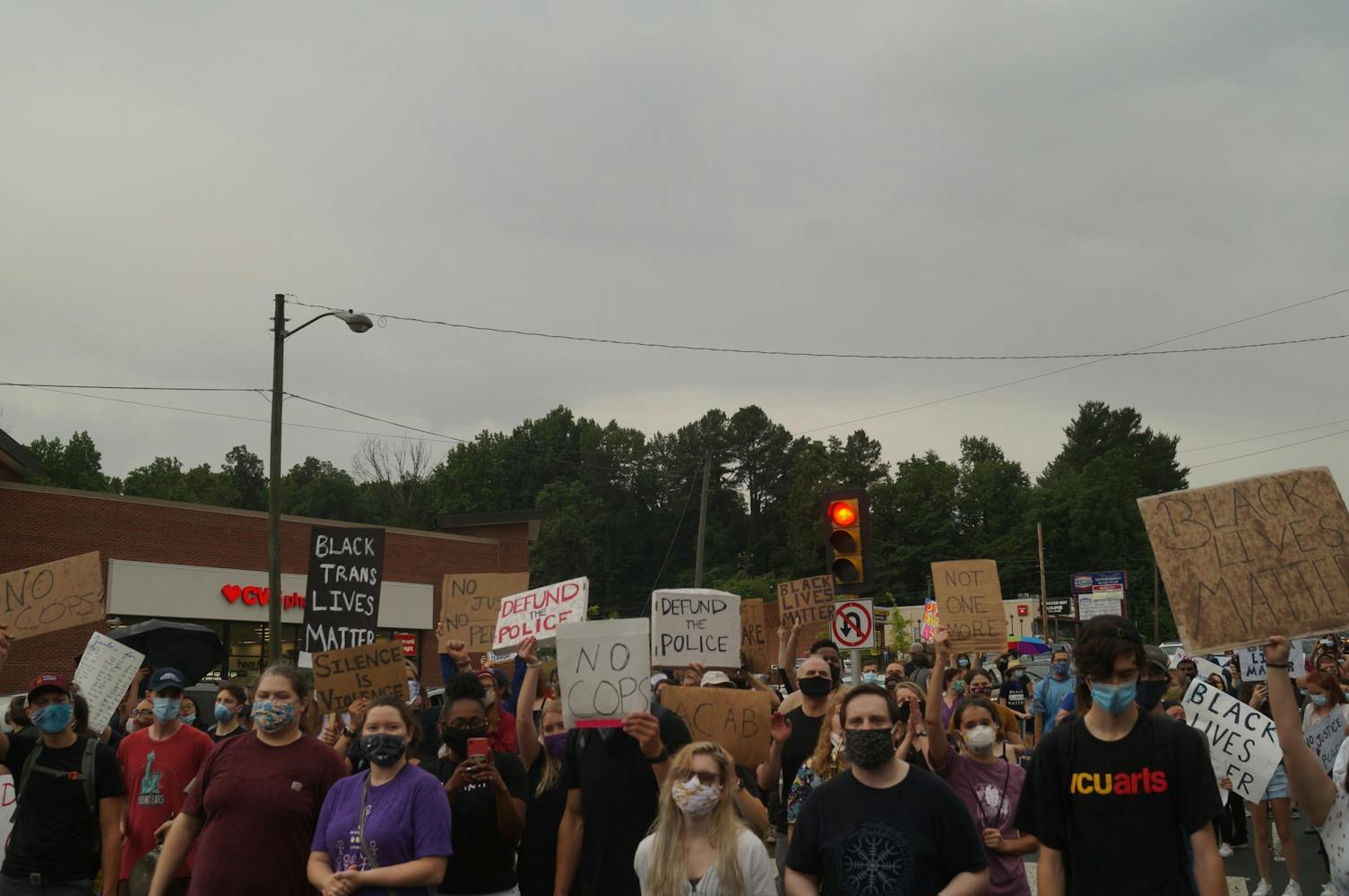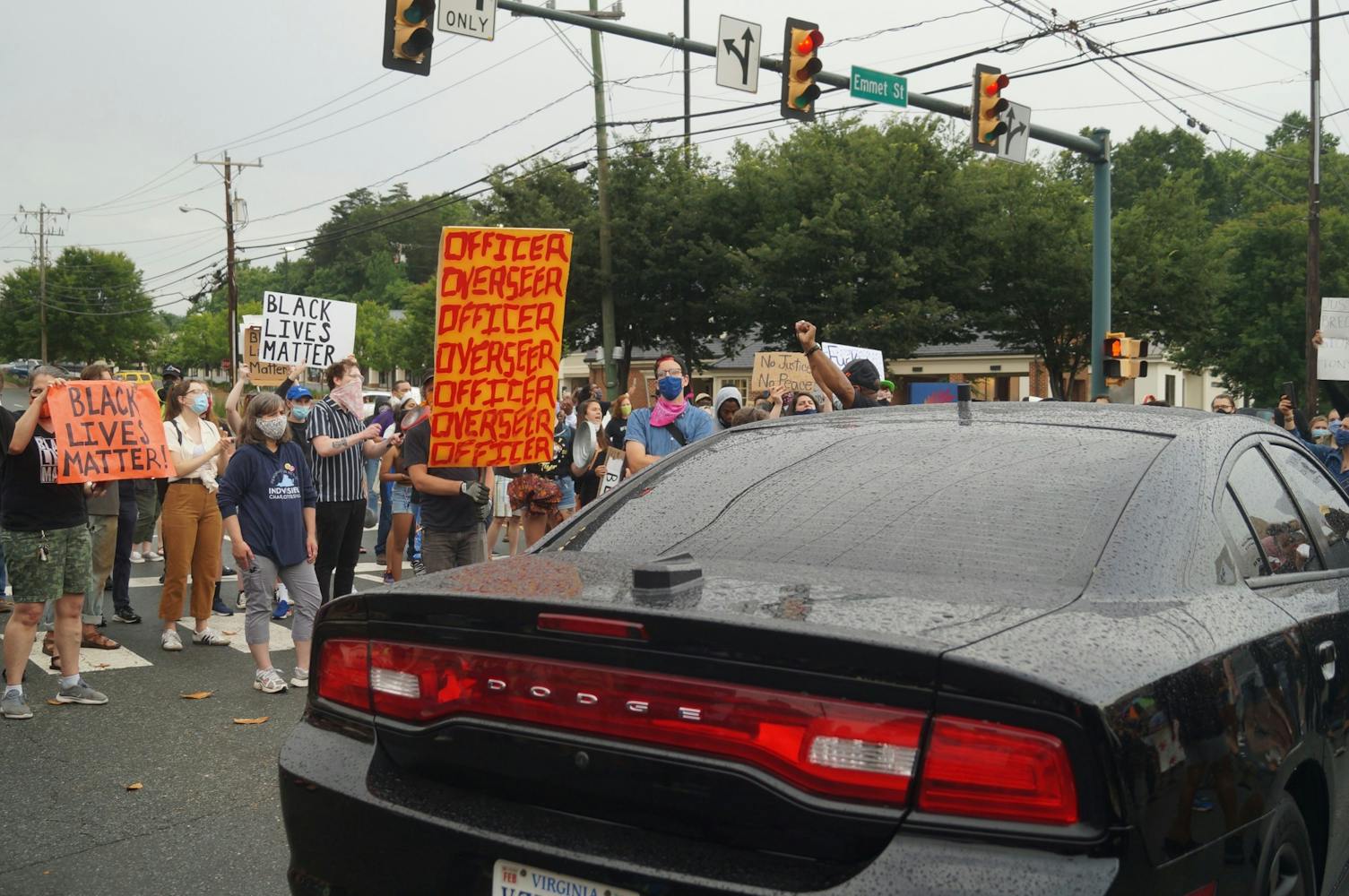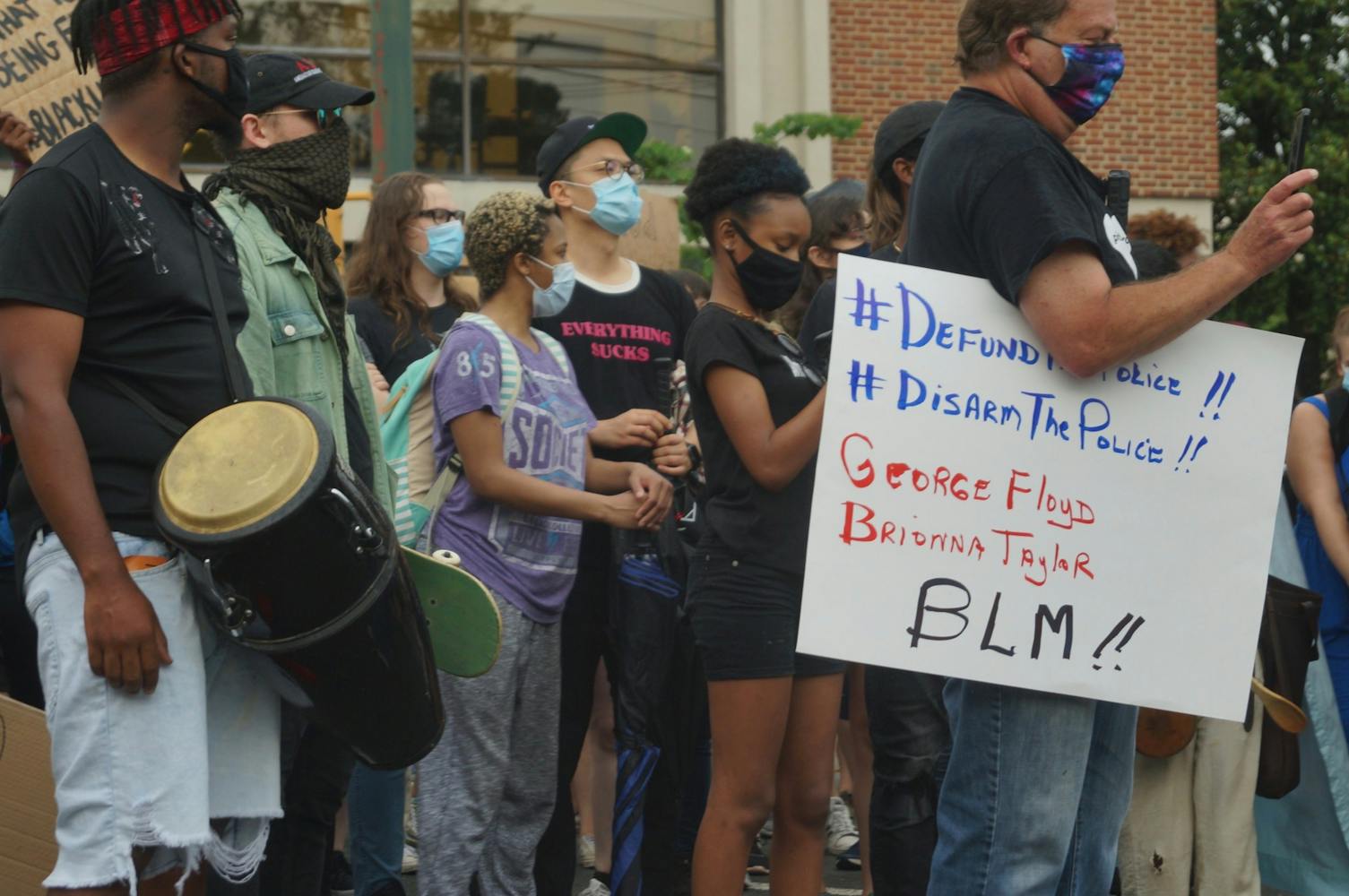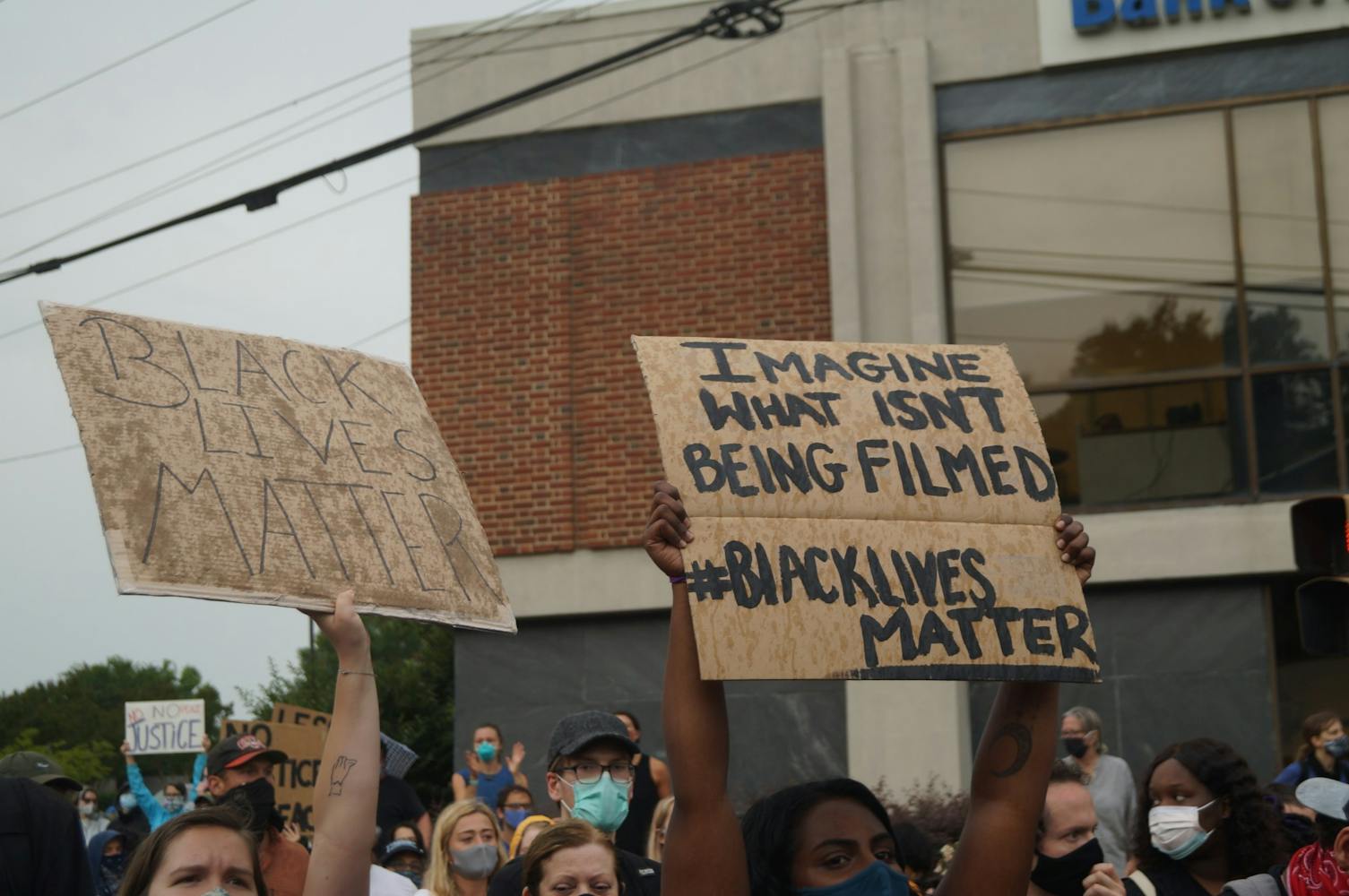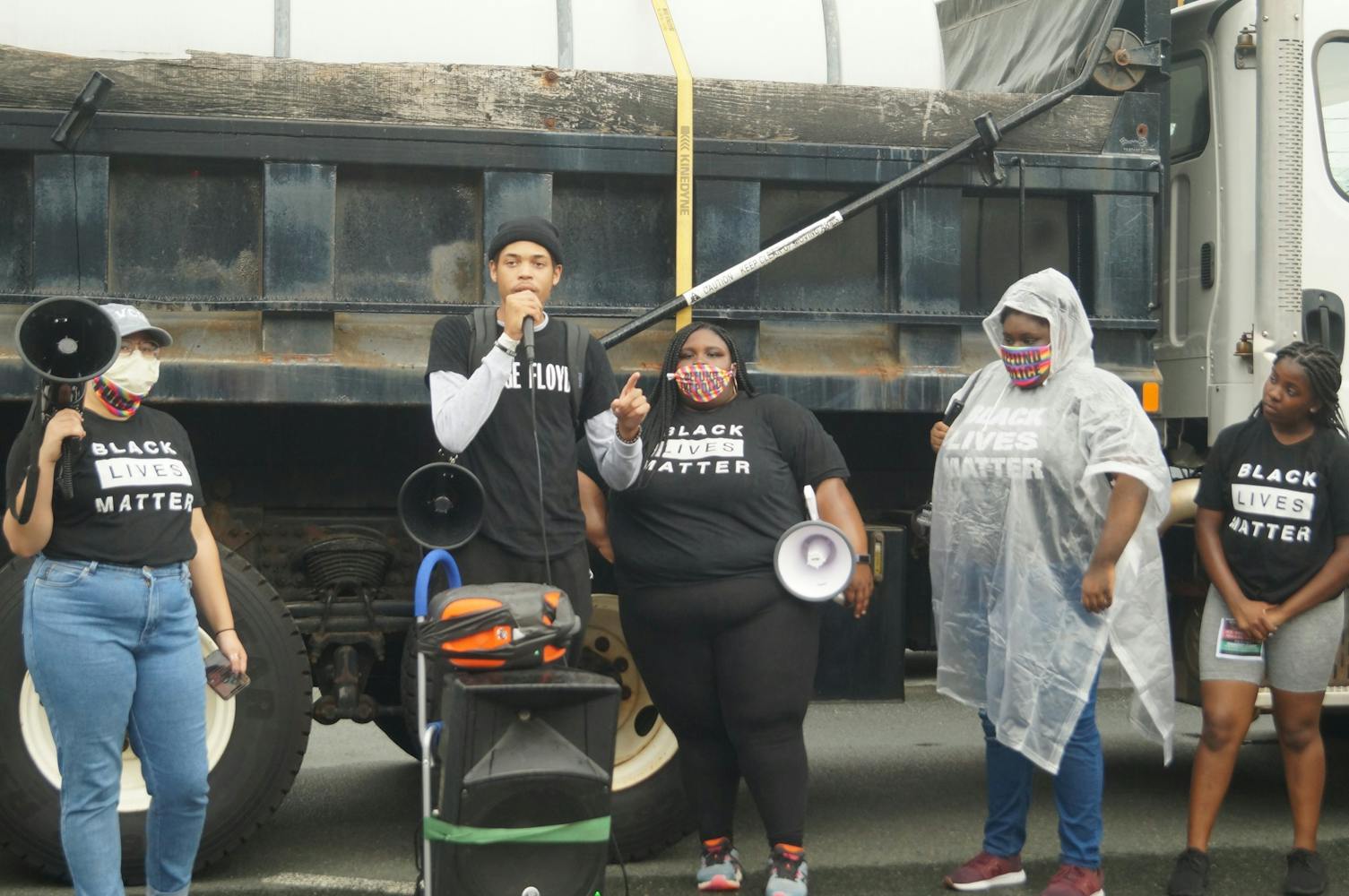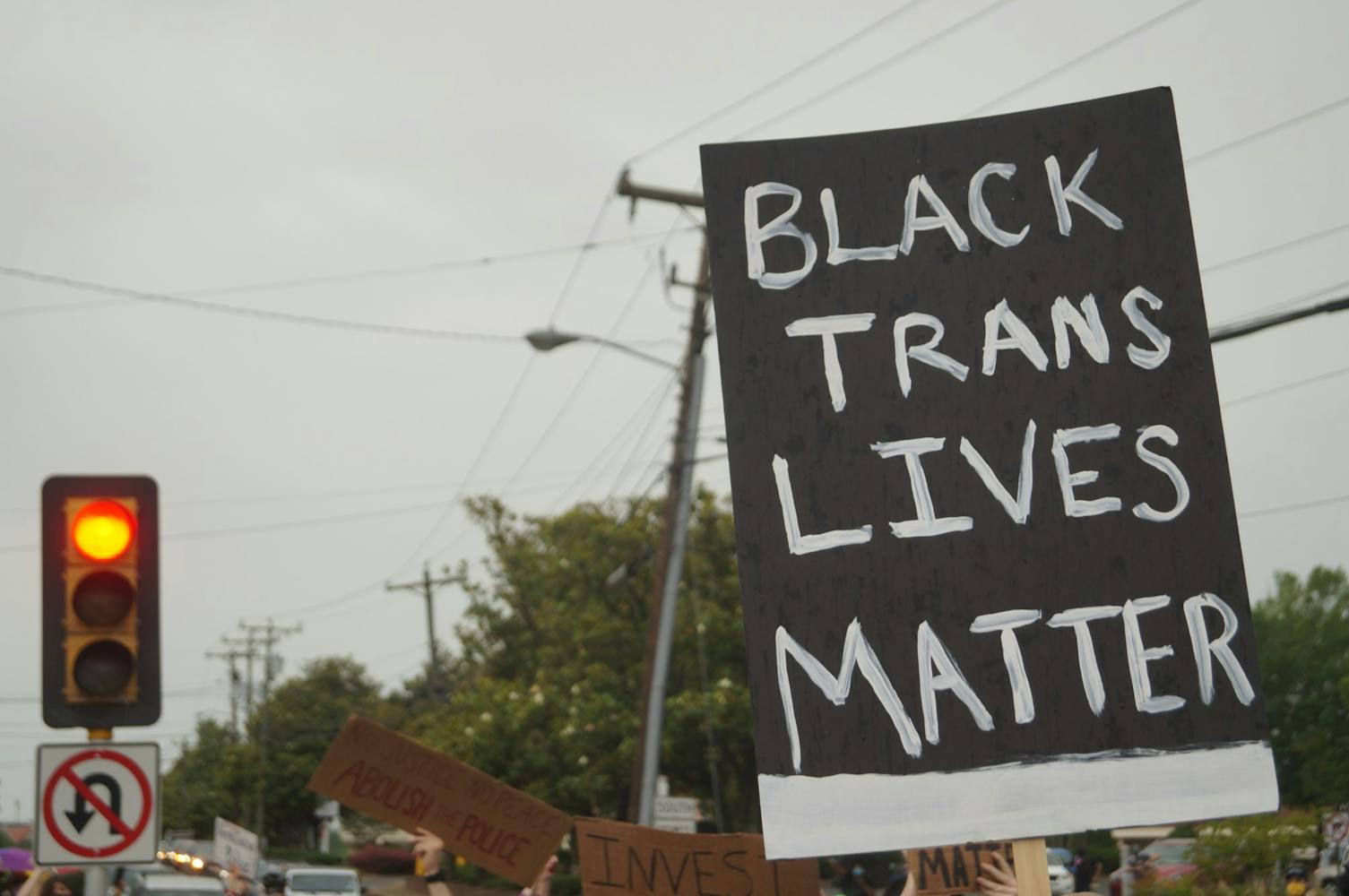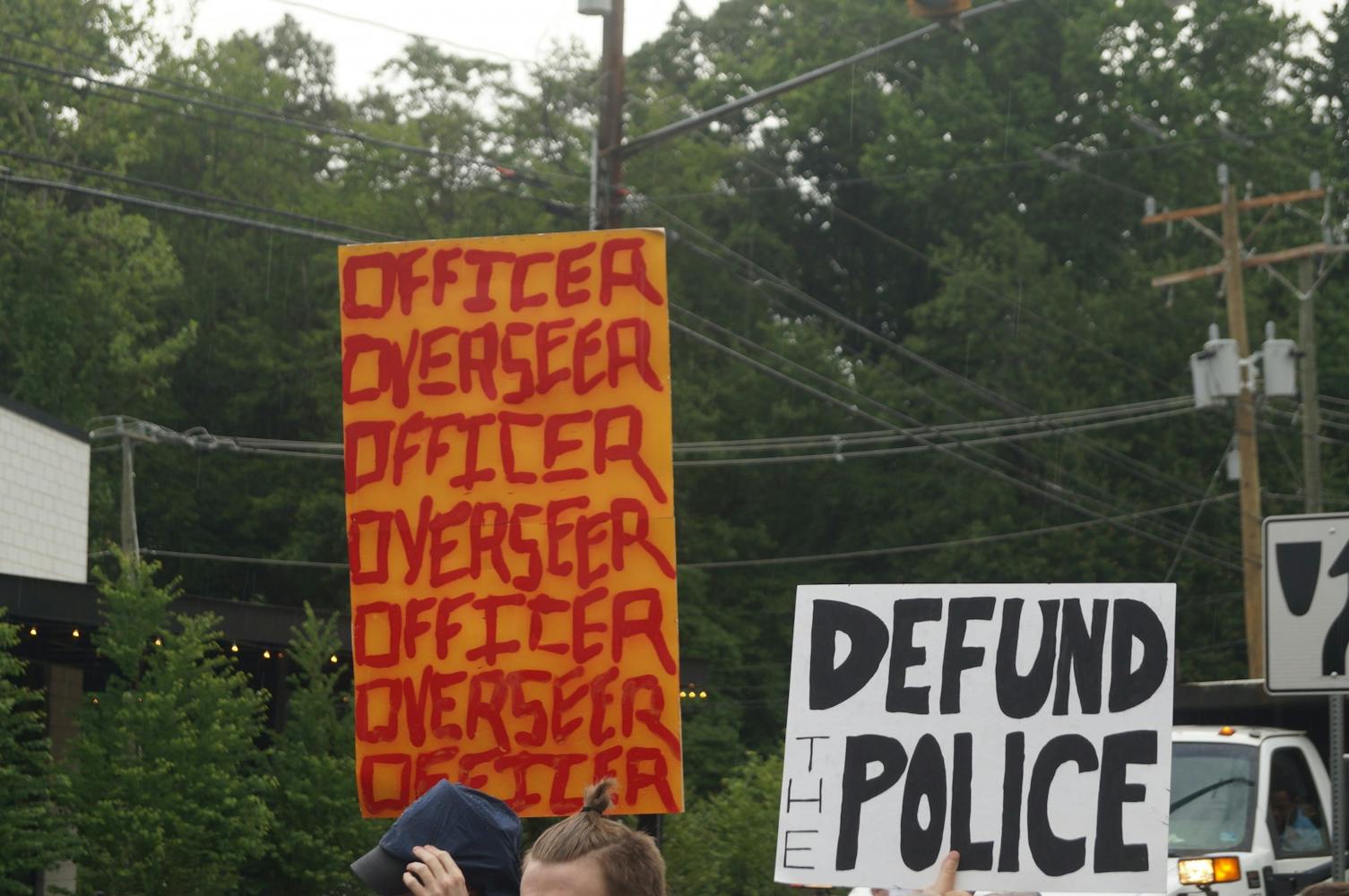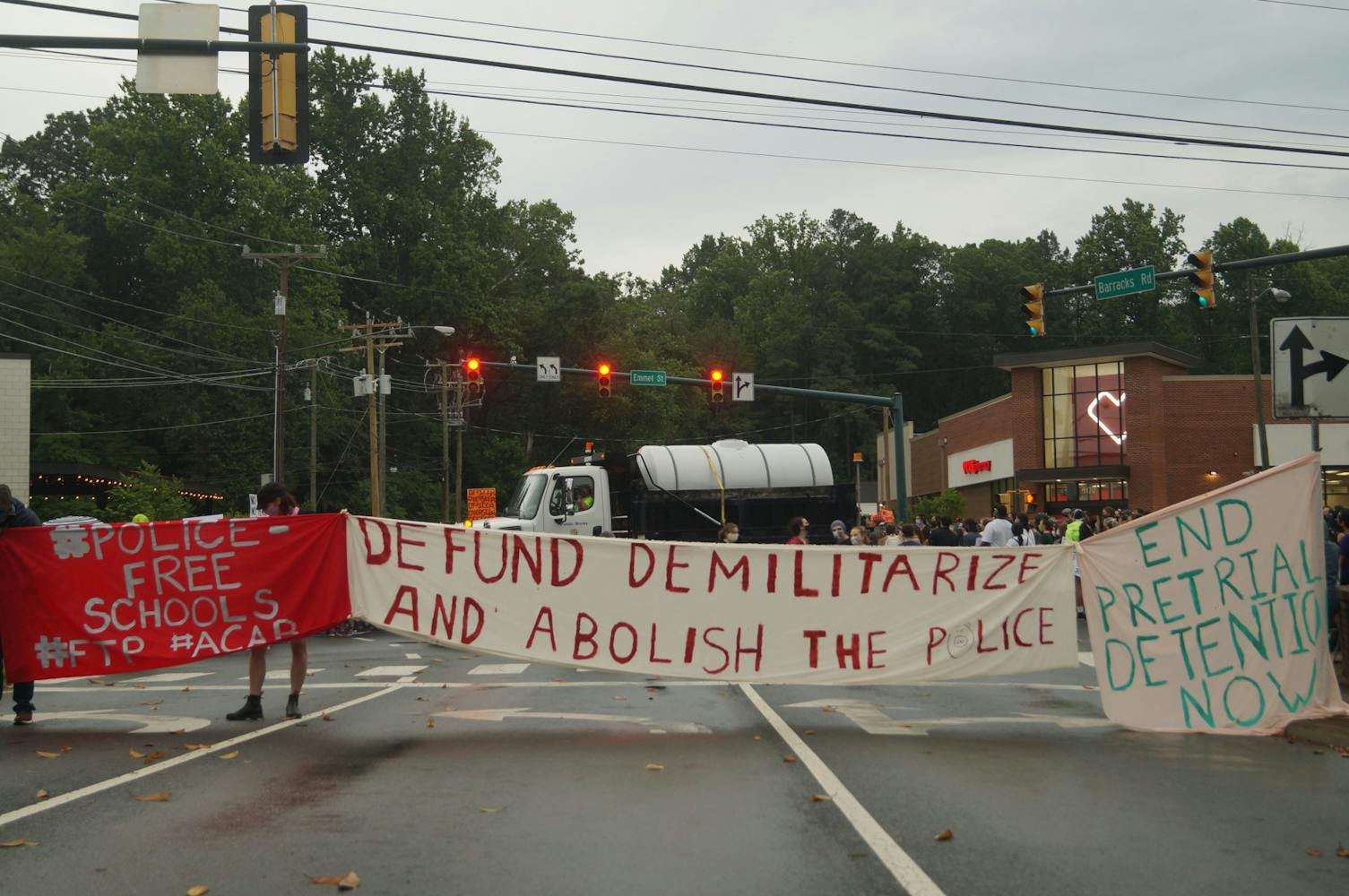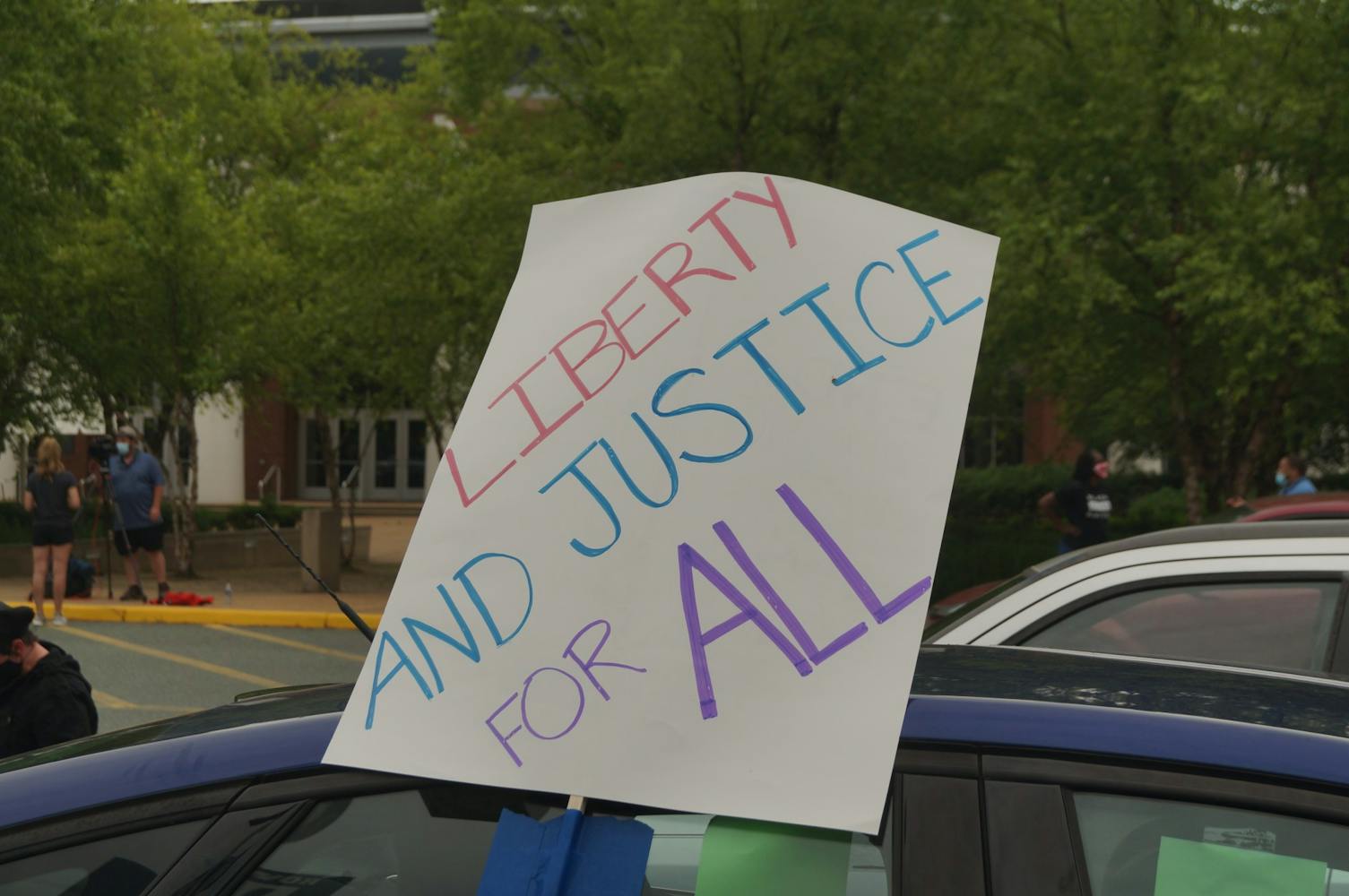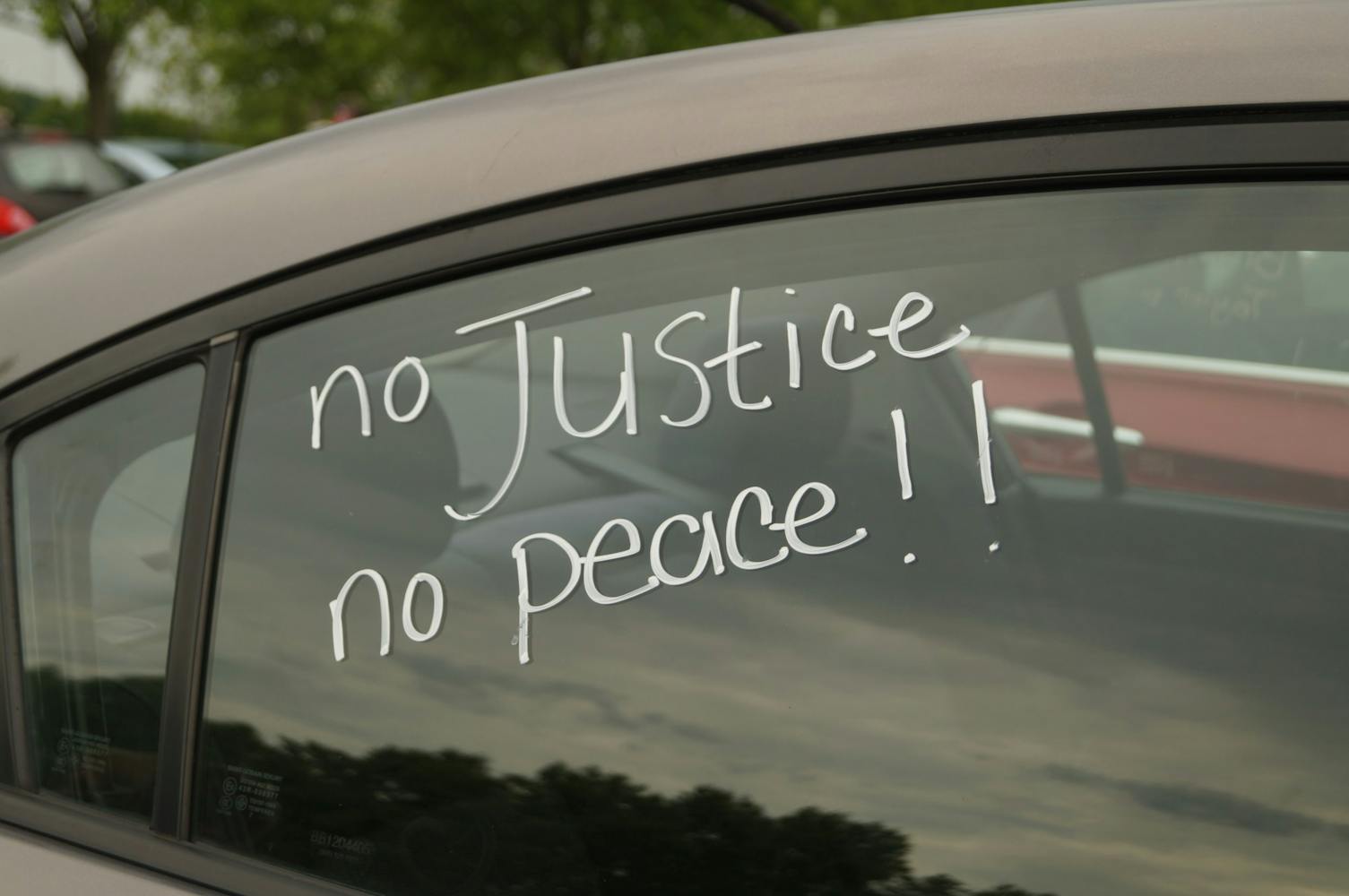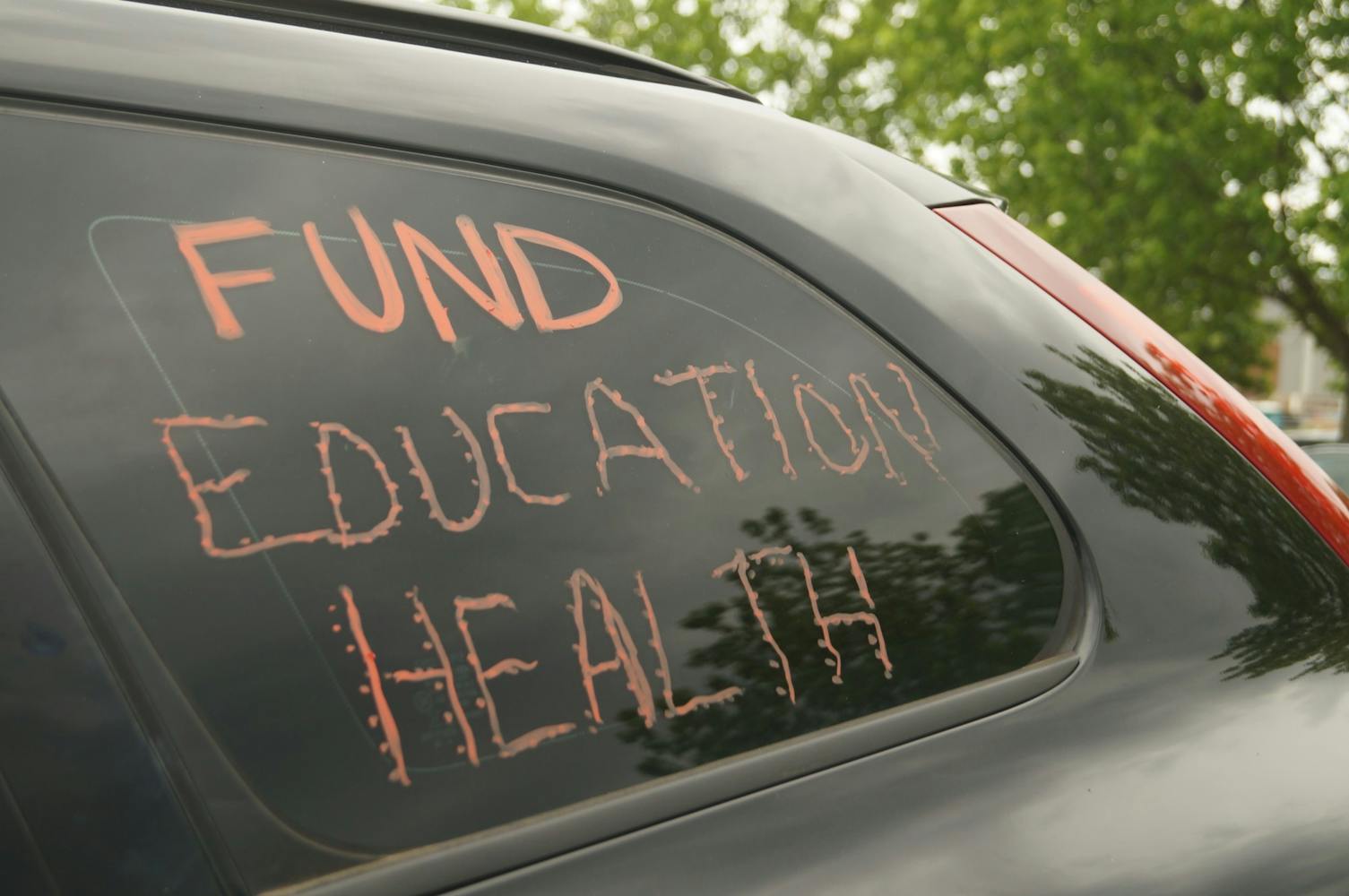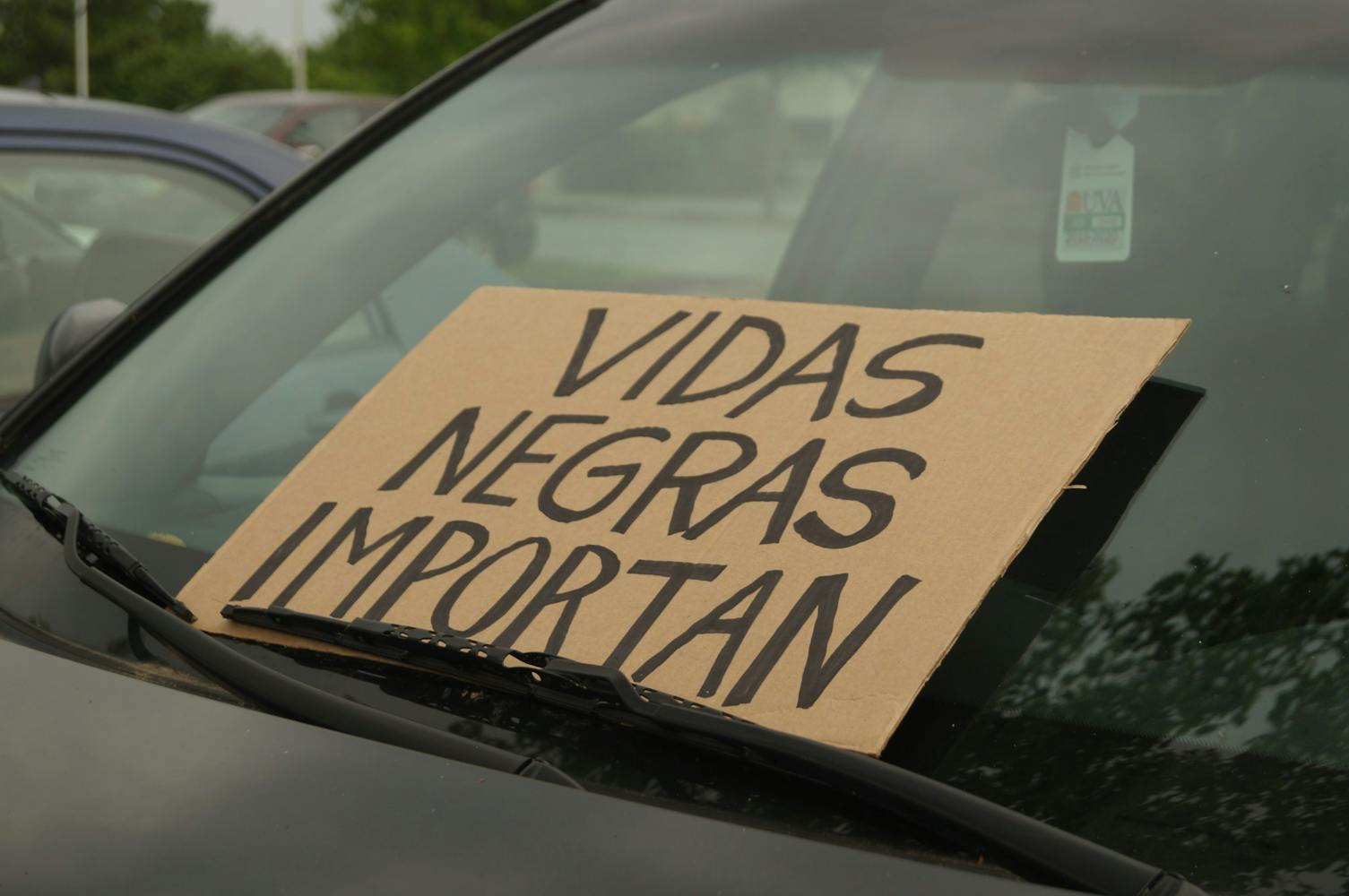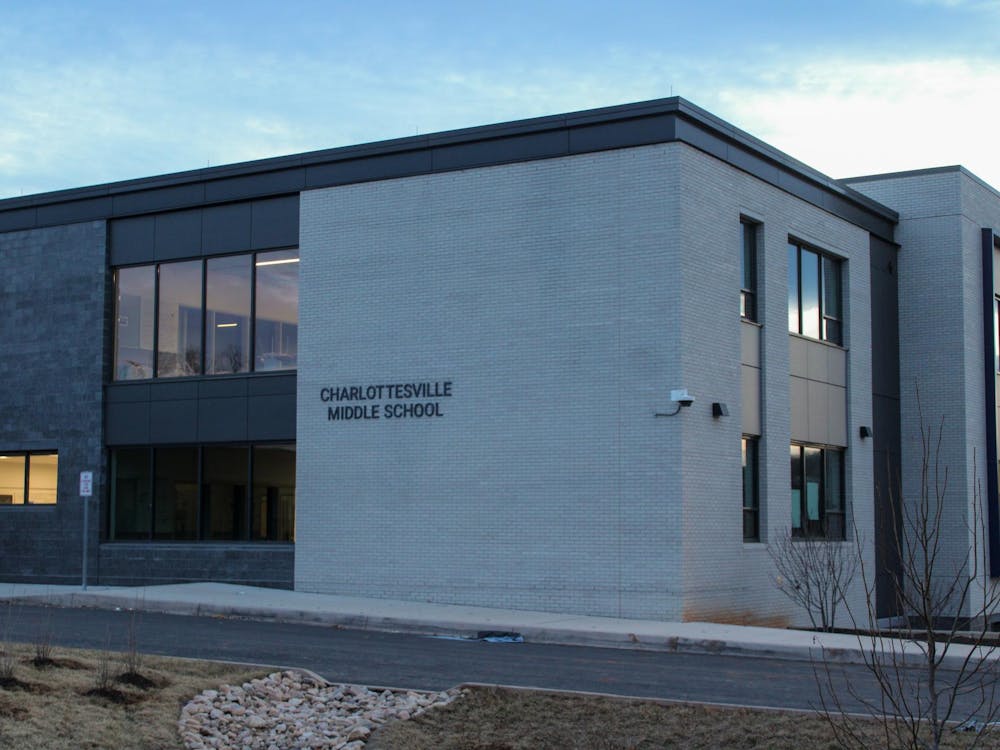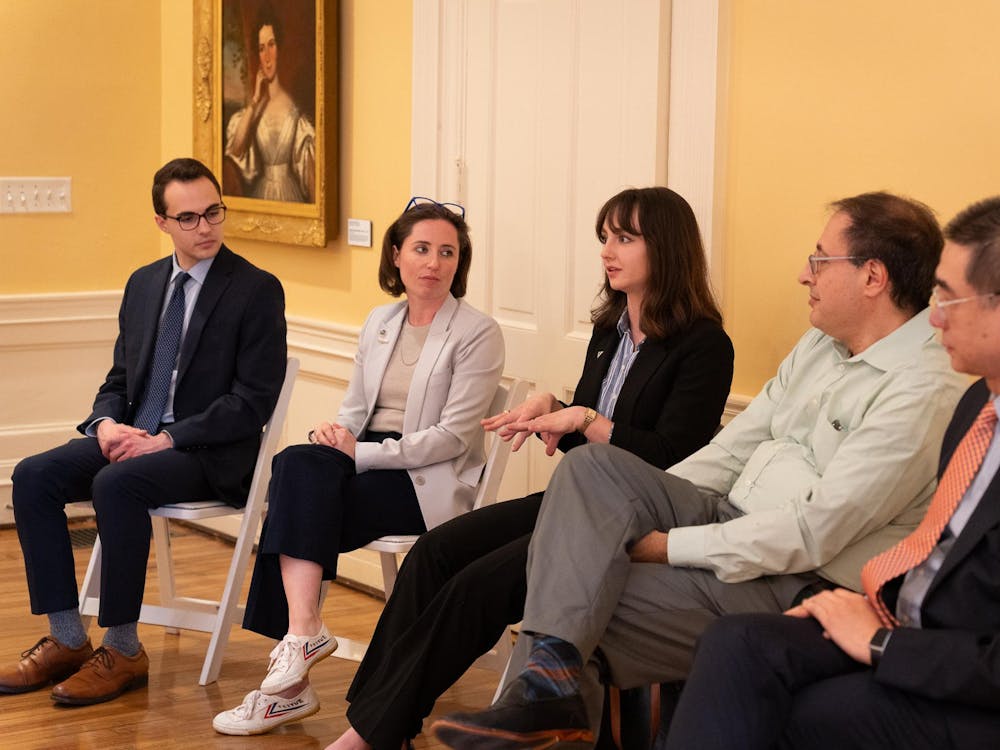Lea en español
More than 200 protesters gathered in the John Paul Jones Arena parking lot Saturday evening for a block party and noise demonstration to call on the local community to divert funds from police to social work services, such as mental health and emergency medical services. Currently, the 2020 city budget allocates 9.54 percent of its funds to the Charlottesville Police Department.
The block party was organized by rising second-year College student Zyahna Bryant and co-organized by Radford University student Trinity Hughes. The demonstration follows nationwide protests that have occurred in response to police brutality and racism sparked by the murder of George Floyd three weeks ago. There have been at least five demonstrations in Charlottesville recently, including gatherings on May 30, June 7 and June 8.
At the block party, protesters burned a Confederate flag and held a noise demonstration for about 25 minutes before they began to march towards the intersection of Emmet Street and Barracks Road. The noise was present throughout the three-hour protest, and consisted mainly of car horns, percussion and chants. Some common chants included “Defund the Police,” “You About to Lose Your Job,” “Black Lives Matter,” “Do it for the Kids,” “Whose Streets, Our Streets,” “We Don’t Need the Police” and “I’m Black and I’m Proud.”
Around 6:25 p.m., the block party began to move. The group walking on foot went first, followed by a line of cars that stretched the length of Barracks Road Shopping Center. Police officers directed traffic, and public works vehicles blocked off nearby roads. The protest ended around 8:40 p.m.
Once the block party reached the intersection of Emmet Street and Barracks Road, some time was set aside for an open microphone. One community member took the opportunity to speak about the importance of protesters contributing to the movement in ways beyond protest.
“If you’re not as angry as I am about discrimination, police brutality and the inequality of colored people in this country, please ask yourself why you are here,” he said. “I have been increasingly proud of my fellow low-income students donating the money that they do not have to bail bonds and other organizations and … I’m going to make a wild assumption and say that not everyone here is low-income … it’s important to do the groundwork, but it’s also important to open your pockets and give what you can if you can.”
Organizers pointed participants towards their solidarity statement accessible via the Defund Charlottesville Police Twitter account. Participants could sign up to receive further information about upcoming actions and ways they could donate.
In a press release sent out Friday, the organizers of the block party specified their demands. They called for the defunding of the Charlottesville City, Albemarle County and University police departments, abolishment of School Resource Officer positions in both City and County schools and end of pre-trial detention.
School Resource Officers are law enforcement officers employed by schools and are considered by many civil rights activists to be a critical link in the school-to-prison pipeline — a trend in which students of color are more likely to be punished through the juvenile court system instead of their school’s own disciplinary channels.
Pre-trial detention occurs when defendants are jailed before their trials. It disproportionately harms low-income defendants, who are less likely to be able to afford bail, and defendants of color, who are more likely to be held under pre-trial detention.
The organizers also demanded that the funds saved by shrinking these programs be transferred to social services.
“Divert those funds to programs that actually support public health and safety, including the Food Equity program, Region Ten, the Charlottesville Free Clinic, the Rent and Tax Relief program, affordable housing efforts, adult literacy programs, neighborhood development services, education and the arts,” the press briefing read. “Eliminate any need for policing by instead constructing front-line social support services administered by social workers, mental health professionals, EMTs, nurses, on-road traffic specialists and trauma-informed crisis intervention teams.”
Hughes described why she considered defunding the police to be important in the press release.
“We don’t need a cop to be just ‘good,’” Hughes wrote. “It’s not enough. I need cops to break down systems that they have benefited from and stop killing black people. That’s why I feel it is a crucial step to defund the police and start giving money out to groups who actually need it such as housing, health and education systems.”
Bryant also wrote in the press release about why the current distribution of societal resources is harmful.
“At the very core of the system of American policing, is this underlying need to surveil and control Black people,” Bryant wrote. “When we look at the abuse of power in the form of racial profiling, police brutality and the school-to-prison pipeline, it becomes crucial that we ask ourselves, why are we funding and supporting institutions and systems that perpetuate cycles of oppression?”

